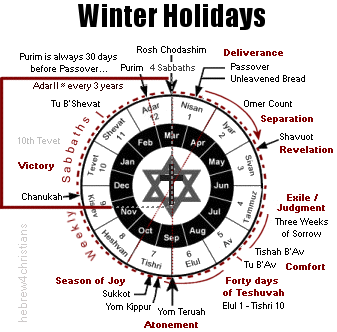|
Jewish Holiday Calendar
Note: For February 2016 site updates, please scroll past this entry....
The winter holidays (חגי החורף) remember special times when God acted on behalf of His people so that they would triumph over their enemies, and therefore they prophetically picture the final victory in the world to come.
The Winter Holidays:
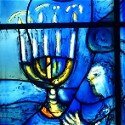
Note that in accordance with tradition, the following holiday dates begin at sundown:
- Month of Kislev (Wed. Nov. 11th [eve] - Fri. Dec. 11th [day])
- Four Sabbaths: Toldot, Vayetzei, Vayishlach, Vayeshev
- Dates for Chanukah 2015 (5776):
- 1st Chanukah candle - Sun. Dec. 6th [Kislev 25]
- 2nd Chanukah candle - Mon. Dec. 7th
- 3rd Chanukah candle: Teus. Dec. 8th
- 4th Chanukah candle: Wed. Dec. 9th
- 5th Chanukah candle: Thur. Dec. 10th
- 6th Chanukah candle: Fri. Dec. 11th (Shabbat Rosh Chodesh Chanukah)
- Month of Tevet (Fri., Dec. 11th [eve] - Sun. Jan. 10th [day])
- Month of Shevat (Sun., Jan. 10th [eve] - Mon. Feb. 8th [day])
- Month of Adar I (Mon., Feb. 8th [eve] - Wed., March 9th [day])
- Month of Adar II (Wed., March 9th [eve] - Fri. April 8th [day])
Note: Many Jewish calendars will list the first day of a holiday without indicating that the holiday actually begins sundown the night before... So, for example, while Purim begins Wednesday, March 23rd at sundown, some calendars may indicate that it occurs on Thursday, March 24...
February 2016 Updates
Note: If any page content appears to be missing, please refresh the page...
Surrounding Presence...

02.29.16 (I Adar 20, 5776) The Name of God, YHVH (יהוה), means "Presence" (Exod. 3:13-14), "Breath" (Gen. 2:7; Num. 16:22), "Life" (Deut. 30:20), and "Love" (Exod. 34:6-7), but it also means the "I-AM-WITH-YOU One" who keeps His promises. The Name YHVH means that "God was (i.e., hayah: היה), God is (i.e., hoveh: הוֶה), and God always will be (i.e., veyihyeh: וְיִהְיֶה)," which implies that He is ever present and not restricted by time or space. Moreover, God is called havayah (הֲוָיָה), which means He is continually sustaining creation by the Word of His power: "In Him we live, move, and have our being" (Acts 17:28; Heb. 1:3). As it is poetically expressed in the Psalms, "Behind and before you besiege me; You lay your hand upon me" (Psalm 139:5):
אָחוֹר וָקֶדֶם צַרְתָּנִי
וַתָּשֶׁת עָלַי כַּפֶּכָה
a·chor · va·ke·dem · tzar·ta·ni
va·ta·shet · a·lai · ka·pe·khah

"Behind and before You besiege (cover) me;
You lay your hand upon me."
(Psalm 139:5)

Download Study Card
"Behind and before you besiege me." The word "behind" is the preposition achor (אָחוֹר), a word related to the word acharon (אַחֲרוֹן), "west," though it also refers to something later (אַחֲרֵי), such as a later place or time (אַחֲרִית). In Hebrew, the preposition generally means "backward" (לאחור) or "behind" (מאחור). God's got your back, friend... Note further that the word translated "before" is kedem (קֶדֶם), a preposition that means "east" but also refers to the primordial beginning, the dawn. The root verb kadam (קָדַם) means to "meet" in initial contact. God is always present for you, friend, and that includes times and days that lie ahead, in the distant future... "As far as the east is from the west," so far does God's compassion and love cover you, surround you, and sustain you (Psalm 103:12).
"You besiege me." The verb tzartani (צַרְתָּנִי) comes from the root tzur (צור) that means to encircle, to press upon, to "pressurize," as by relentlessly attacking a stronghold. The image is that God "hems us in," that is, He surrounds us and shelters us with His Presence – so that we cannot escape: You are under God's supervision and protection, friend... And while the root tzur can imply tzuris (trouble, affliction), in this context it is used to picture the Lord securing our station, preserving, protecting, and defending our way. "You lay your hand upon me." God's personal and providential hand is at work in your life – He is HaMashgiach hagadol (הַמָּשְׁגִיחַ הַגָּדוֹל) - the Great Overseer of the universe, and that means your way is as sure and secure as the very power that God's own will affords.
"If there be anywhere on earth a lover of God who is always kept safe from falling, I know nothing of it - for it was not shown me. But this was shown - that in falling and rising again we are always kept in the same precious love." - Julian of Norwich
"We cannot fall beneath the arms of God. However low we fall, they are underneath us still." - William Penn
Thank God for His providential and all-pervasive care for your soul. He is the LORD of all time and space, and that means He is an ever-present help to bring you safely back home...
Seeing your New Face...
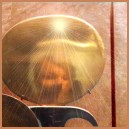
[ The following is related to this week's Torah reading, parashat Vayakhel... ]
02.29.16 (I Adar 20, 5776) At the entrance of the Tabernacle a copper "laver" was built, the place where the priests would wash themselves and prepare to come before the Divine Presence (Exod. 30:18). The Torah says that this basin was made from the mirrors of women who offered them to help build the sanctuary (see Exod. 38:8). Spiritually understood, the mirror was transformed from a place where we encounter our own appearance into a place where we encounter God. Instead of focusing on our superficial face – how it looks and how we might esteem ourselves, we now see ourselves in light of God's love, with our former self-image "sacrificed" or surrendered for the gift of a deeper self (see 2 Cor. 5:16). This is the "new self" cleansed by the Word of God (Eph. 5:26), reflecting back the radiance of His Presence, as it says: "put on the new self (הָאָדָם הֶחָדָשׁ) created after the likeness of God in true righteousness and holiness" (Eph. 4:24). The sacrificed mirror represents turning to face reality, to see yourself as God sees you... Because of Yeshua, we have access to the inner heart of God (Heb. 4:16). So know who you are in Messiah: "And we all, with unveiled face, beholding the glory of the Lord, are being transformed into the same image from one degree of glory to another. For this comes from the Lord who is the Spirit" (2 Cor. 3:18).
 |
Teshuvah of Despair...

02.29.16 (I Adar 20, 5776) There are moments – dark, gnawing, raw – when you may lose sight of hope, when you might even fear that you have lost your faith – not in God or his promises (חַס וְחָלִילָה) – but rather in yourself, in your own strength to continue, to keep pressing on "hope against hope..." The remedy here is always the same: to remember that within you – that is, in your flesh - "there is no good thing" and that the miracle of salvation is made secure by God's passion for you, not your own power or desire. "Not by might, nor by power, but by my Spirit, saith the LORD of Hosts." We don't trust in ourselves nor in the strength of our inner resolve, but solely in the power of God to make the way. We must turn away from ourselves to regain the message of God's unfailing love; only when we lose sight of ourselves do we find ourselves. God redeems you from your lost estate and touches you in your uncleanness; He clothes himself in your pain so that you may be clothed in his love. That never changes, despite dark moments, and to that we must always return...
Where it says, "I can do all things through Messiah who strengthens me" (Phil 4:13), that includes being healed of the inner pain of rejection, abandonment, and even abuse suffered from childhood. It means being set free from disillusionment, despair, and the oppression of relentless fear. "I can do all things through Messiah" means no longer accepting messages of self-hatred, no longer heeding the malicious whispers that say: "I am of no value," "I am unlovable," "my life is hopeless." No, "I can do all things through Messiah" means learning to be accepted, honored, and esteemed by God; it means opening your heart to God's love and blessing for your life; it means allowing your heart to be made right, to have inner peace... After all, Yeshua's great prayer was that we would know the truth of God's love for us (John 17), and this is the central need our lives...
Note: Please remember this ministry in your prayers, friends. We have been struggling since the birth of Emanuel David a few weeks ago, emotionally, financially, etc. Thank you.
 |
The Revelation of God...
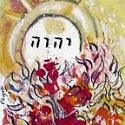
02.29.16 (I Adar 20, 5776) When Moses asked the LORD, har'eini na et-kevodekha - "Please show me your glory" (Exod. 33:18), the sages said he wanted to reconcile God's supreme power and goodness despite the prevalence of evil in the world. God answered, "I will make all my goodness pass before you, and I will proclaim before you my name the LORD (יְהוָה)... but," he said, "you cannot see my face, for man shall not see me and live" (Exod. 33:19-20). The early sages interpret God's answer to mean that once we encounter God's goodness and love (defined by the essential name י־ה־ו־ה), we must trust that what is beyond our understanding nevertheless works for our ultimate good, even if its purpose may be unknown to us at the present time (Rom. 8:28). The LORD said both: "I will make my goodness manifest to you," and "you cannot see me and live," which means that we "see through a glass darkly" as we sojourn through this world (1 Cor. 13:12). God manifests yet still we can't fully see... In this life you may stand near God in the "cleft of the rock," on the very mountaintop of revelation, but you will still be in a cloud of unknowing (Exod. 33:22-23). Nevertheless God promises to "shelter you with his hand"; he will provide you a place of refuge and the strength to keep trusting despite incomprehensible times of testing.
For more on this topic, see: "The Revelation of God: Further thoughts on Ki Tisa."
 |
Constructing the Tabernacle...

02.28.16 (I Adar 19, 5776) According to tradition, Moses descended from Sinai (with the second set of tablets) on Yom Kippur (Tishri 10), and on the following morning he convened the people to explain God's instructions regarding building the Mishkan (i.e., Tabernacle). First, however, Moses reminded the people to observe the Sabbath as a day of rest, and then he asked for contributions of gold, silver, bronze, and other materials for the construction of the sanctuary and its furnishings. Each contribution was to be a "free-will offering" (i.e., nedivah zevach: נְדָבָה זֶבַח) made by those "whose heart so moved him." As a sign of their complete teshuvah (repentance) for the sin of the Golden Calf, the people gave with such generosity that Moses finally had to ask them to stop giving!
Betzalel and Oholiav were appointed to be the chief artisans of the Mishkan, and they led a team of others that created the roof coverings, frame, wall panels, and foundation sockets for the tent. They also created the parochet (veil) that separated the Holy Place (ha'kodesh) from the Holy of Holies (kodesh ha'kodeshim). Both the roof and the veil were designed with embroidered cherubim (winged angelic beings). Betzalel then created the Ark of the Covenant and its cover called the mercy seat (kapporet), which was the sole object that would occupy the innermost chamber of the Holy of Holies. Betzalel also made the three sacred furnishings for the Holy Place – the Table of Bread (shulchan), the lamp (menorah), and the Altar of Incense (mizbe'ach ha'katoret) – as well as the anointing oil that would consecrate these furnishings.
Betzalel then created the Copper Altar for burnt offerings (along with its implements) and the Copper Basin from the mirrors of women who ministered in the entrance of the tent of meeting. He then formed the courtyard by installing the hangings, posts and foundation sockets, and created the three-colored gate that was used to access the courtyard.
Shabbat Shekalim
Four special Sabbaths occur just before the start of spring: two before Purim and two before Passover. Collectively, these Sabbaths are called "The Four Shabbatot" and four additional Torah readings (called Arba Parashiyot, or the "four portions") are read on each of these Sabbaths in preparation for the holidays. The first of the four Sabbaths is called Shabbat Shekalim (שבת שקלים), "the Sabbath of the Shekels," which occurs just before the month of Adar begins (or Adar II during leap years). An additional reading (Exod. 30:11-16) is appended to the regular Torah reading that describes the contribution of a half-shekel for the construction and upkeep of the Mishkan (Tabernacle).
The Miracle of New Life...
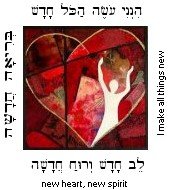
02.26.16 (I Adar 17, 5776) Only God can help us die to ourselves - to let go of the "self life" and to be set free from the painful tyranny of what we naturally are; only the LORD can truly save us from ourselves. The old nature is never "reformed" by religion but is put to death by a supernatural act of God, as it says: "I have been crucified (συνεσταύρωμαι) with Messiah; it is no longer "I" who live, but Messiah who lives in me. And the life "I" now live in the flesh "I" live by faith in the Son of God, who loved me and gave himself for me" (Gal. 2:20). By faith we trust that we already have been crucified with him, just as by faith we trust that we already have newness of life, though all this is only "theoretical" unless and until the Spirit of God makes it real in our lives: "The wind blows where it wishes, and you hear its sound, but you do not know where it comes from or where it goes. So it is with everyone who is born of the Spirit" (John 3:8). Only the LORD can put a new heart within us; only God can make the new "I" walk in the flesh; only the Spirit can breathe upon dry bones raised from the dust to make them live (Ezek. 37:5).
עֵינַי תָּמִיד אֶל־יְהוָה
כִּי הוּא־יוֹצִיא מֵרֶשֶׁת רַגְלָי
ei·nai · ta·mid · el · Adonai
ki · hu · yotz·i · me·re·shet · rag·lai

"My eyes are ever toward the LORD,
for he will pluck my feet out of the net."
(Psalm 25:15)

We believe not only that Yeshua died as our substitute for sin - saving us from its penalty - but also that our old nature has died with him - delivering us from its power: "We know that our old self was crucified with him in order that the body of sin might be brought to nothing, so that we would no longer be enslaved to sin" (Rom. 6:6). "For as many of you as were baptized into Messiah have put on the Messiah" (Gal. 3:27) [by "baptism" think identification, not some ritual act]. May the LORD our God make the truth of what He has done for us alive and breathing freely within us -- by the power of his salvation in Yeshua!
Shabbat shalom and love to you all! Thank you for being part of Hebrew for Chrisitans!
Law of the Half-Shekel...
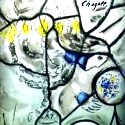
[ The following is related to our Torah reading this week, parashat Ki Tisa... ]
02.26.16 (I Adar 17, 5776) Our Torah portion this week begins with the law of the "half-shekel" (מַחֲצִית הַשֶּׁקֶל), which teaches that each of us must contribute to establish the bounds of the Holy Place (Exod. 30:11-16). The Sanctuary is not only to be within us, but is to be built between us, in our connection with one another: God in the "midst of the camp." This is symbolized by the collection of coins given by every person – rich or poor – which was then melted down to make "sockets" for the Tabernacle, holding it all together.... The half-shekel is also called a "ransom for the soul to the LORD" (כּפֶר נַפְשׁוֹ לַיהוָה), since each soul is needed to build the holy place together: Each person is redeemed by God's love so that He dwells in the "midst of the camp" (1 Pet. 2:5; Eph. 2:20).
It has been noted that you cannot hear the sound of one grain of sand falling, though you can hear the sound when a bucket of sand is being poured out. Though each of us is a "half-shekel," only a small amount in light of the whole, we are not invisible or unimportant to God, and our contribution is part of his habitation, his kingdom.
 |
Deliverance from Death...

02.26.16 (I Adar 17, 5776) The ancient Greek philosophers sought for "salvation" (Σωτηρία), which they generally understood as freedom from the fear of death... Therefore Socrates sought to dispel mythical superstition by regarding philosophy as the "practice for death," by which he meant that reflecting upon this "shadowy world" would instill a profound hunger for the eternal (and ideal) world, and he therefore advised that, since we all must die, we ought to prepare ourselves now for eternity, by focusing the mind on what is most essential, real, and beautiful. The Jewish sages likewise later affirmed, "This world is like a corridor before the World to Come; prepare yourself in the corridor, that you may enter into the hall" (Avot 4:21), which implied that the great commandment is דִּרְשׁוּנִי וִחְיוּ - "Seek Me and live" (Amos 5:4), as the prophet Isaiah (7th century BC) cried out, "Seek the LORD while he may be found; call upon him while he is near" (Isa. 55:6). Therefore Yeshua (יֵשׁוּעַ) is justly named "our salvation" (יְשׁוּעָתֵנוּ), since it is by his hand that we are delivered from bondage to the fear of death (Heb. 2:15). The resurrection of Yeshua utterly overthrows the power of death (i.e., the devil), and eternally secures our welcome in the world to come. Therefore do not let your heart be troubled; have faith in God, for he "prepares a place for you" on the other side of the veil of this temporal world (John 14:1-3). "Whoever is born of God conquers the world (νικᾷ τὸν κόσμον), and this is the overcoming power that conquers the world, even our faith" (1 John 5:4). As Yeshua testified: "I AM the resurrection and the life (אָנכִי הַתְּקוּמָה וְהַחַיִּים). The one who trusts in me will live, even though he dies; and whoever lives and believes in me will never, ever, die (οὐ μὴ ἀποθάνῃ εἰς τὸν αἰῶνα). Do you believe this?" (John 11:25-26). Yeshua's words indicate there are two distinct senses of the word "death," namely physical death (temporal) and spiritual death (eternal). Though we may indeed die physically, that does not imply that we will die spiritually, since we are given eternal (spiritual) regeneration and life by the miracle of God's love...
לא אָמוּת כִּי־אֶחְיֶה
וַאֲסַפֵּר מַעֲשֵׂי יָהּ
lo · a·mut · ki-ech·yeh
va'a·sa·per · ma'a·sei · Yah

"I shall not die, but I shall live,
and recount the deeds of the LORD."
(Psalm 118:17)

We press on in hope, dear friends: "For our light and momentary troubles are achieving for us an eternal glory that far outweighs them all. So we fix our eyes not on what is seen, but on what is unseen. For what is seen is temporary, but what is unseen is eternal. Now we know that if the earthly tent we live in is destroyed, we have a building from God, an eternal house in heaven, not built by human hands. Meanwhile we groan, longing to be clothed with our heavenly dwelling (2 Cor. 4:17-5:1-2). God our Savior "is able to keep you from stumbling and to present you blameless before the presence of his glory with great joy" (Jude 1:24). May God help us persevere in hope, remembering the glory that lies ahead!
The Armor of Light...

[ A necessary reminder for this day and this hour... ]
02.25.16 (I Adar 16, 5776) We are in the midst of a great spiritual war -- the war for the truth. This has been the battle from the beginning. The very first recorded words of Satan (הַנָּחָשׁ) questioned God's truth: "Did God really say...?" (Gen. 3:1). In the end there will be found two types of people: those who love the truth and those who love the lie; these are children of light (בְּנֵי הָאוֹר) and children of darkness (בְּנֵי הַחשֶׁךְ), respectively. Followers of Yeshua the Messiah are told to "walk as children of light" / ὡς τέκνα φωτὸς περιπατεῖτε (Eph. 5:8). Children of light are called to be am kadosh - a holy people - separate from the evil engendered by the fallen world and its forces, just as the very first creative expression of God was the separation of light from darkness (Gen. 1:3-4). The children of light "hate evil and love the good," and conversely, the children of darkness "hate the good and love evil" (Psalm 34:21, Prov. 8:13, Amos 5:15, John 3:20-21). Yes, we hate sin, because it separates people from healing; we hate sin because we love others. We are to walk in the peace and love of God; to do acts of justice and lovingkindness (Psalm 97:10). As Yeshua said, "No one can serve two masters, for either he will hate the one and love the other, or he will be devoted to the one and despise the other" (Matt. 6:24).
Surely our great need is to have heart, to find strength, resolution, and steadfast endurance to walk through these heartless and depraved days (2 Tim. 3:1-5). We are not without God's help, of course. Yeshua told us that the Ruach HaKodesh (רוּחַ הַקּדֶשׁ) would be "called alongside" (παράκλητος) to comfort us on the journey. The English verb "comfort" literally means "to give strength" (from com- ["with"] and fortis ["strong"]), an idea similarly expressed by the verb "encourage," that is, to "put heart [i.e., 'core'] within the soul." In Hebrew, the word courage is expressed by the phrase ometz lev (אמֶץ לֵב), meaning "strong of heart," denoting an inner quality of the will rather than of the intellect. Our faith is the victory that overcomes the world (1 John 4:4, 5:4).
Fear is the primary tool of the devil and the underlying motive behind sin itself (Rom. 14:23). Beloved, "do not be overcome by evil, but overcome evil with good" (Rom 12:21).
May we always focus on Yeshua, the Light of Torah and the true Wisdom of God: "Whoever has My commandments (מִצְוֹתַי) and keeps them, that is the one who loves me. And the one who loves me will be loved by my Father, and I will love him and will manifest (lit., "shine within" from ἐν, "in" + φαίνω, "shine") myself to him" (John 14:21). There it is - the Source of the Light that overcomes all darkness; the Power that is behind the armor of God... Yeshua is the Beginning, the Center, and the End of all true meaning from God.
"Where your treasure is, there will be your heart also" (Matt. 6:21). Your heart, your soul, your inmost being: What you value most defines and "locates" you. We cannot not "treasure;" we cannot desire not to desire; we are inherently valuing beings. It's not a question of whether you will worship, but what you indeed are worshiping. Where is your heart? What are you seeking? Our heart, our core, our meaning is revealed by what we value most... And May God give you the grace to find true treasure!
 |
Gospel According to Sinai...

[ The following is related to this week's Torah reading, parashat Ki Tisa... ]
02.24.16 (I Adar 15, 5776) The tragic episode of the Golden Calf revealed that the Israelites were unable to keep the law, even though they had personally experienced the power of God's deliverance from Egypt and had heard God's Voice directly speaking the Ten Commandments at Mount Sinai. The presence of the idol demonstrated that something more was needed, and that the law by itself was insufficient to change the heart (Rom. 3:20). The poignant intercession of Moses on behalf of Israel - his willingness to die on behalf of the people - foreshadowed the need for a New Covenant (בְּרִית חֲדָשָׁה), a deeper revelation of the righteousness of God in terms of mercy and grace (Exod. 34:6-7; John 1:17; Rom. 3:21). The (second) revelation of the Name YHVH (יהוה) therefore represented a "gospel" moment for Israel. Just as the first set of tablets, based as they were on the justice and holiness of God, were broken, so a second set was graciously restored based on God's forgiveness and love. Likewise, Yeshua was broken on behalf of the law but was raised again so that all who trust in Him can understand that God is "merciful and gracious, slow to anger and abounding in steadfast love and truth" (Exod. 34:6, Psalm 86:15, 103:8). Only at the cross of Yeshua are God's justice and love forever reconciled (Prov. 16:6; Psalm 85:10; Rom. 3:26).
Note: For more on this subject, see the Ki Tisa article, "God's Stubborn Love."
 |
Theology and Art...

[ The following is related to our Torah reading this week, parashat Ki Tisa... ]
02.24.16 (I Adar 15, 5776) Our Torah portion this week includes the tragic account of the "Golden Calf," a molten image of gold that was forged into the shape of a calf, which was created by Aaron to pacify the people who feared they were abandoned by the LORD in the desert (see Exod. 32). The creation of the Golden Calf was a direct violation of the Second Commandment not to have any other gods before the LORD: not to make an idol or "carved image" (פֶסֶל) of "any likeness (תְּמוּנָה) of anything in heaven above, or in the earth beneath, or in the water under the earth" (Exod. 20:3-6). The Torah's language here seems to forbid making any concrete expression of the Divine Presence, a general prohibition against "finitizing" the infinite or identifying God with any aspect of creation. In other words, while God sustains all things, He is not fully present in any particular thing we experience: He is beyond all the predications of finite reality, and therefore we know him through a process of negation, or by denying that he can be categorized, identified, explained, and so on. This is part of the meaning of the Name YHVH (יהוה) after all: the ineffable, unutterable mystery and wonder of the Divine Presence (Gen. 32:29; Exod. 3:14; Judges 13:18; Isa. 9:6).
The problem arises, however, when we try to reconcile this abstract conception of God as "not [anything] finite" (i.e., ein sof [אֵין סוֹף], the Endless One) with the particulars of our daily experience as human beings. Indeed, how can we adequately express worship for God apart from concrete rituals and language that are bound up with finite references? We seek to represent God's beauty and truth through words, art, music, theater, and so on, yet our expressions are bound to particular things, and we are therefore unsure how our worship connects to ultimate reality... This is a problem inherent in the Torah itself, since the artistry required of the Mishkan (Tabernacle) involved devising and creating various pieces of art, and even creating molten images (e.g., the cherubim upon the kapporet of the Ark), yet this surely did not violate the deeper meaning and end of Torah! The same made be said of the rituals of the priests which foreshadowed a deeper reality -- the deeper atonement of God, the "Substance and not the shadow" (Heb. 8:5). So how do we make art that does not idolize or idealize the finite? How can we do our rituals, speak theology, preach, teach, create visual art or music, that does not distract or mislead the truth of God?
Note: Thinking about God's "transcendence" can make Him seem "far far away" to our everyday lives and struggles, but it is equally true that God is "immanent" within creation, that is, God is very near to us (and indeed he is as close as our breath and the beat of our hearts). We must exercise judicial balance here, since Scripture teaches that God is both transcendent and immanent; he is both the exalted Creator of all things (אֱלהִים) and he is the Compassionate Lover of our souls (יְהוָה). In other words, we should be careful not think of God as transcendent at the expense of his immanence (i.e., God as distant, an inaccessible "unmoved mover" etc.), and likewise we should be careful not to regard God as immanent at the expense of his transcendence (i.e., God is (quite literally) everything, i.e., "pantheism," "monism," etc). We affirm that God's Presence extends far beyond the cosmos yet intimately upholds the lilies of the field and knows the hairs on our heads... Paradoxically, He is a God who is near and a God who is far off (Jer. 23:23).
For more on this topic, see: "Theology and Art: Further thoughts on Ki Tisa."
 |
The Fight for Sanity...
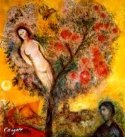
02.23.16 (I Adar 14, 5776) We are surely living in stressful times, friends... The (carefully crafted) propaganda of hate, fear-mongering, and suspicion is ubiquitous. The Scriptures say the time just before the prophesied "end of days" would be "perilous" (χαλεπός) and full of human depravity (2 Tim. 3:1-5). In light of the raging spiritual war all around us, the following needs to be restated: "The important thing is to not lose your mind..."
The mind is the "gateway" to your heart, and it is therefore essential to guard your thinking by immersing yourself in the truth... Fear is often the result of believing the lie that God is not in control or is unable/unwilling to help you... "Not losing your mind" means being grounded in what is real, and it therefore means understanding your identity and provision as a child of God. "God has not given us the spirit of fear, but of power (גְּבוּרָה / δύναμις) and of love (ἀγάπη), and of a "sound mind" (σωφρονισμός), literally a "delivered" mind, "healed" from fragmentation (2 Tim. 1:7). The Greek word "sound mind" (σωφρονισμός) comes from the word saos (σάος), meaning "safe" in the sense of being under the care of the Spirit of God... Undergo self-examination; test your thinking: God does not lead us into fearful craziness or self-destruction, but instead leads us to trust and to genuine inner peace.
Part of the task of "guarding your mind" is being able to discern between good and evil. "The fear of the LORD is to hate evil (יִרְאַת יְהוָה שְׂנאת רָע); I hate arrogant pride and the evil way and perverse utterances" (Prov. 8:13). As Amos cried out, "Hate what is wrong, love what is right" (שִׂנְאוּ־רָע וְאֶהֱבוּ טוֹב). We are called to love the truth and abhor the lie. Tolerating sin in a world ripe for judgment is a tacit form of "collaboration" with the enemy... Indeed, the only thing regarded as intolerable in the devil's world is the objection that people have a supposed "liberty" to sin. But the LORD is clear on this point: "Those who call evil good and good evil are doomed, who turn darkness into light and light into darkness, who turn bitter into sweet and sweet into bitter. Those who think they are wise in their own sight are as good as dead, those who think they possess understanding" (Isa. 5:20-21). If you feel crazy in an insane world, then you are likely quite sane, and the world will indeed feel strange once you have been awakened from its madness and refuse to be moved by the delusions of the crowd... May God help each of us walk in the peace of His Truth.
Note: The Hebrew word for "disciple" (talmid / talmidah) means "student" or "learner." "Talmud Torah" is the disciplined study of revealed Truth. If you struggle with fear, remind yourself of what is "really real," and ask God for healing from accepting false visions of reality.
 |
Worldly Collisions...
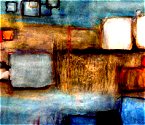
02.23.16 (I Adar 14, 5776) "Love not the world, neither the things that are in the world. If any man love the world, the love of the Father is not in him" (1 John 2:15). The way of faith always represents collision with the world (κόσμος) and its philosophy of the "good life." Happy are those who "hunger and thirst" for righteousness, who refrain from this world and make themselves poor because of inner heartache. For them no amount of the world's pleasures can obscure the difference between what is and what ought to be... This world is at best a corridor to the world to come, a "valley of decision" about what we ultimately choose to believe and to love... The heart of faith looks forward to "the city that has foundations, whose designer and builder is God" (Heb. 11:10).
צָמְאָה נַפְשִׁי לֵאלהִים לְאֵל חָי
מָתַי אָבוֹא וְאֵרָאֶה פְּנֵי אֱלהִים
tza·me·ah · naf·shi · le·lo·him · le·el · chai
ma·tai · a·vo · ve·e·ra·eh · pe·nei · e·lo·him

"My soul thirsts for God, for the living God.
When shall I come and appear before God?"
(Psalm 42:2)

There is a great danger to become so assimilated into this world that there is no longer any collision, no longer any protest, but merely the whimper of the soul that begs to be left alone from the general toil and troubles of this age... Conscience is seared; natural affections have been abandoned; and the "life" of the soul becomes a mere cipher, a phantom, a ghost... This is the scheme of the worldly dialectic that traps the human soul into living and dying for the sake of sheer vanity. May God help us not to so waste our days... The core prayer of the godly soul is always, "Help me, O LORD my God! Save me according to your steadfast love" (Psalm 109:26). Empty our hearts from vanity, O LORD, and afflict us with hunger and thirst for You, for You alone are what we really need....
Torah of Brokenness...

[ The following is related to our Torah reading this week, parashat Ki Tisa... ]
02.23.16 (I Adar 14, 5776) It was only after Moses experienced brokenness and confession (prefigured by the shattering of the first set of tablets and the 40 days of teshuvah) that the inner meaning of God's Name was revealed as "mercy, grace, longsuffering, faithfulness, compassion," and so on (Exod. 34:6-7). The passion of Moses prefigures the inner breaking necessary before the law of God can be "written upon the heart." As it is written of the New Covenant, "I will put my law within them, and I will write it on their hearts" (Jer. 31:33).
הָרפֵא לִשְׁבוּרֵי לֵב
וּמְחַבֵּשׁ לְעַצְּבוֹתָם
ha-ro·fei · lish·vu·rei ·lev
u'me·cha·besh · le'atz·tze·vo·tam

"He is the healer of the brokenhearted
and the One who binds up their sorrows."
(Psalm 147:3)

Download Study Card
Builder of the House...
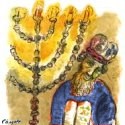
[ The following is related to our Torah reading this week, parashat Ki Tisa... ]
02.23.16 (I Adar 14, 5776) Our Torah reading this week (Ki Tisa) states that God endowed a man named "Betzalel" with the Spirit of God (רוּחַ אֱלהִים), and with wisdom (חָכְמָה), understanding (תְּבוּנָה), and knowledge (דַּעַת) - the same attributes used to describe God as the Creator of the Universe (Exod. 35:31; Prov. 3:19-20). Indeed, the name Betzalel (בְּצַלְאֵל) means "in the shadow of God" (from בְּ [in] + tzel [צֵל], "shadow" + El [אֵל], "God") who "foreshadowed" Messiah in that 1) he was from the kingly tribe of Judah, 2) he was a young carpenter, 3) he was unusually "filled with the Spirit of God," 4) his father's name (Uri) means "my light" (James 1:17), 4) his assistant was called Oholiav (אָהֳלִיאָב), a name that means "my Father's tent," and 5) it was Betzalel (rather than Moses) who actually built the Mishkan, which was the pattern for the spiritual House of God (Heb. 3:3-6; 1 Pet. 2:5). Indeed, as the one who fashioned the "Ark of the covenant" where the blood would be presented for our atonement, Betzalel foresaw the message of the redemption of Messiah.
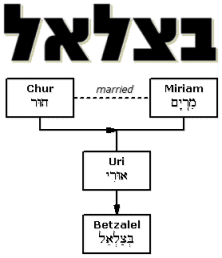 |
Note: For more on this topic, see the "Betzalel and the Messiah" article.
Gravity and Grammar...
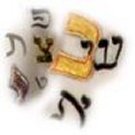
02.22.16 (I Adar 13, 5776) Someone recently wrote me and objected to my statement that logic is, at bottom, grounded in "mystery," and then denounced my thinking as "nonsense." What I was hoping to point out, however, was the strange "gravity" found in our syntactical connections, the "gravity of grammar," if you will, that connects our ideas and coherently orders and distributes their relationships to the external world, and that this "grammar of Being" is surely mysterious.... After all, it makes little sense to simply state that necessary truths, such as the "law of noncontradiction" [i.e., that nothing can both be and not be at the same time and in the same respect: ~(A & ~A)], or the "law of excluded middle" [i.e., that everything must either be or not be: (A v ~A)], or the "law of identity" [i.e., that everything is identical with itself: (A =A) & (A ≠ ~A)], are those that "must be true" in all possible worlds, without explaining or at least wondering over the "force" and "weight" that are found in these "indubitable" axioms. Indeed it is precisely the "gravity" of logical connection that constitutes the link between our use of language and reality itself, and merely appealing to an axiom to prove an axiom begs the question of what exactly makes an axiom logically compelling in the first place.... Negatively we can say that the presence of contradiction reveals a problem with truth, but positively it is more difficult to define logical relations in terms of "elegance," "harmony," "fitness," or some other aesthetic description. I say all this simply to note that there is a "sentiment" of rationality, since it must be admitted that the sheer fact of existence itself is itself mysterious, and the question as to why anything exists at all is ultimately grounded in God's inscrutable decrees (Isa. 40:28; 55:8-9; Rom. 11:33; Psalm 145:3). Saying that logic is "mysterious," then, is surely not to say that it is "irrational." Therefore we read that Yeshua is the Source of all states of being in the universe (πάντα δι᾽ αὐτοῦ ἐγένετο, καὶ χωρὶς αὐτοῦ ἐγένετο οὐδὲ ἕν. ὃ γέγονεν / "All things came into being by Him, and apart from Him nothing came into being that has come into being" (John 1:3)), and that all of creation is being constantly upheld by the word of His power (Heb. 1:3). "All things were created by Him and for Him," and "in Him all things consist" (συνεστηκεν, literally, "stick together") (Col. 1:16-17). Yeshua is the Word or "Logic" (Λόγος) of God, and all things are radically grounded in His Life (John 1:1,4). He is the Source and End of truth, as he attested: אָנכִי אָלֶף וְתָו רִאשׁוֹן וְאַחֲרוֹן ראשׁ וָסוֹף / "I am the 'A' and the 'Z,' the First and the Last, the Beginning and the End" (Rev. 22:13).
Addendum: Either there is "logic" that is ontologically binding and significant for all people (i.e., a "grammar of being"), or there is nothing but relativism and biased individual perspectives. In other words, either truth is possible (and knowable to us) or we are left with postmodern chaos and solipsistic nihilism... However God is "not a man that he should lie," nor is He deceiver. We can trust that since we are made in God's image, the laws of thought apply in real ways to what he has made, as Rene Descartes (1596-1650) said. The issue, then, may be rephrased to ask whether all knowledge is derived from "reason" or if there may be other "organs of knowledge" in addition to human ratiocination and inference. For instance, the great philosopher and prodigious mathematician Blaise Pascal (1623-1662) taught that the "heart has its reasons of which reason knows nothing," which means that wisdom is not knowable through rational calculation, since rational calculation begins with unprovable "first principles" or "self-evident" intuitions. Pascal insightfully wrote: "For knowledge of first principles... is as solid as any derived through reason, and it is on such knowledge coming from the heart and instinct, that reason has to depend and base all its argument" (Pascal: Pensées). Reason, then, is a servant of our passions, activated and made subservient to the role of will and desire in the pursuit of truth. However reason alone (i.e., "rationality") cannot demonstrate why we should care for the truth, why we believe that knowledge is better than ignorance, why love and peace are valuable, and so on.
Some people disdain philosophy and think that we should be simple-minded in our faith. Now while it's true that we should be "as little children" in trust of our Heavenly Father, "yet among the mature we do impart wisdom (σοφία), although it is not a wisdom of this age or of the rulers of this age, who are doomed to pass away. But we impart a secret and hidden wisdom of God (θεοῦ σοφίαν ἐν μυστηρίῳ τὴν ἀποκεκρυμμένην), which God decreed before the ages for our glory" (1 Cor. 2:6-7).
 |
Treasures in Heaven...
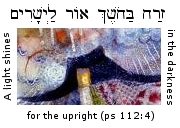
[ The following is related to this week's Torah reading, parashat Ki Tisa... ]
02.22.16 (I Adar 13, 5776) Our Torah portion this week (i.e., parashat Ki Tisa) begins with the statement, "each person shall give (וְנָתְנוּ) a ransom (i.e., kopher: כּפֶר) for his life to the LORD" (Exod. 30:12). The sages note that the word ve'natnu ("shall give") can be written backward and forward, alluding to the idea that whoever gives tzedekah (i.e., "charity") never feels the loss of giving anything away. Even more: giving benevolence produces wealth; tzedakah is truly an investment in your spiritual future! Indeed it is written: "tzedakah saves from death" - צְדָקָה תַּצִּיל מִמָּוֶת (Prov. 10:2). As Yeshua said, "Give, and it will be given to you. Good measure, pressed down, shaken together, running over, will be put into your heart. For with the measure you use it will be measured back to you" (Luke 6:38). He also admonished us, "Do not lay up for yourselves treasures on earth, where moth and rust destroy and where thieves break in and steal, but lay up for yourselves treasures in heaven, where neither moth nor rust destroys and where thieves do not break in and steal. For where your treasure is, there your heart will be also" (Matt. 6:19-21).
The love of God is like that: when we give it away, it becomes our own possession. Love is inherently something shared. The converse is also true. If we withhold from others, then eventually God will make it so that we are unable to give what we would have given had we the opportunity (Matt. 13:12). "For what does it profit a man to gain the whole world and forfeit his soul?" (Mark 8:36). In this age of prevalent economic fear, giving tzedakah is truly counter-cultural and faith-affirming: but the truth abides: when we give, we receive....
 |
Parashat Ki Tisa - כי תשא

02.21.16 (I Adar 12, 5776) Our Torah reading for this week is Ki Tisa, one of the longest of the entire Torah. It includes the tragic account of the Sin of the Golden Calf (עֵגֶל מַסֵּכָה) and Moses' passionate intercession for Israel. After a period of teshuvah (repentance) for Israel's idolatry, the LORD graciously revealed the meaning of the Name YHVH (יהוה), that is, the thirty-two words that have become known in Jewish tradition as the Shelosh Esrei Middot, or the "Thirteen Attributes of God's Mercy." This was the LORD's own definition of His character and attributes to Moses after the breaking of the Sinai covenant. See the Ki Tisa Summary for the Hebrew text and audio of this vital revelation from God.
זָרַח בַּחשֶׁךְ אוֹר לַיְשָׁרִים
חַנּוּן וְרַחוּם וְצַדִּיק
za·rach · ba·cho·shekh · ohr · lai·sha·rim
chan·nun · ve·ra·chum · ve·tzad·dik

"Light dawns in the darkness for the upright;
He is gracious, merciful, and righteous."
(Psalm 112:4)
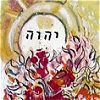
Download Study Card
Recall that in our last two Torah readings (i.e., Terumah / Tetzaveh), we read how Moses was upon Mount Sinai receiving the vision of the Sanctuary (i.e., the Mishkan or "Tabernacle") and its various furnishings. In this week's portion, God commanded that all Israelite men over the age of twenty were required to pay a tax for the upkeep of the Sanctuary: "each shall give (וְנָתְנוּ) a ransom (i.e., kofer: כּפֶר) for his life to the LORD" (Exod. 30:12). The sages note that the word ve'natnu can be written backward and forward, alluding to the idea that whoever gives tzedekah (i.e., "charity") never feels the loss of having given anything away (Bava Batra). Giving benevolence produces wealth; tzedakah is an investment in your spiritual future! Indeed, "charity saves from death" - tzedakah hatzil mi-mavet: / צְדָקָה תַּצִּיל מִמָּוֶת (Prov. 10:2; 11:4). The love of God is like that: when we give it away, it becomes our own possession. The converse is also true. If we withhold helping others, eventually we may be unable to give what we would have given had we the opportunity (and consequently, we lose our blessing). In this age of economic fear, giving tzedakah is truly countercultural and faith-affirming: but the truth abides: when we give, we receive....
After this tax was defined, the LORD described some additional elements that would be required for the priestly service at the Sanctuary, namely, a copper washstand, sacred anointing oil, and incense for the Golden Altar in the Holy Place. The Lord then named Betzalel, a man "filled with the Spirit of God" to be the chief architect of the Mishkan. Before the construction would begin, however, the Lord warned the people to be careful to observe the Sabbath day. Immediately following this admonition, God gave Moses the two tablets of the Ten Commandments, which were inscribed directly by the hand of God.
Before Moses returned to the camp, however, "certain people" had talked his brother Aaron into making a golden idol which they began to worship as their "god." The LORD then told Moses of their treachery and threatened to destroy all the Israelites, but Moses interceded on their behalf. As he rushed down the mountain, with the tablets in hand, he saw the people dancing about the idol and smashed the Tablets in anger. Moses then destroyed the idol and led the Levites in slaying 3,000 of the ringleaders.
The following day, Moses returned up the mountain and begged God to reaffirm the covenant. After a 40 day period of intercession, the Lord finally told Moses to carve a second set of Tablets and to meet him again at the summit of Sinai, where He would show Moses his glory and reveal to him the meaning of His Name (יהוה). When Moses encountered the LORD in a state of brokenness and forgiveness, his face began to shine with glory - a glory that foretold of the New Covenant of God's mercy and grace to come in Yeshua.
When the people saw Moses coming down the mountain with the second set of Tablets, they understood they were forgiven and that the Covenant had been renewed. When they approached him, however, they drew back in fear, because his face was radiant with the glory of God. Moses reassured them, however, and then told them all that the Lord had commanded while he was on the mountain. When Moses had finished speaking with them, he put a veil (מַסְוֶה) over his face. From that time on, Moses wore a veil in the camp, though he removed it whenever he went before the Lord for further instructions.
Please see the Summary Page for parashat Ki Tisa for more information. You can also download the Shabbat Table Talk for this portion here:
Reverential Perceptions...

02.19.16 (I Adar 10, 5776) The fear of the LORD is the foundation of wisdom, which is the right apprehension of truth. Indeed the Hebrew word ra'ah (רָאָה), "seeing," is related to the word yirah (יִרְאָה), "fear," suggesting that when we really see life as it is, we find wonder, awe, and a sense of holy mystery. Life itself becomes sacred, set apart, and illuminated. Every bush will be aflame with the Divine Presence and the ground we walk upon shall suddenly be perceived as holy (Exod. 3:2-5). Nothing will seem small, trivial, or insignificant. In this sense, "fear and trembling" (φόβοv καὶ τρόμοv) before the LORD is a description of the inner awareness of the sanctity of life itself (Phil. 2:12-13). The reverence of God sanctifies our perception and enables us to see clearly. As it is written, "The fear of the LORD leads to life" (יִרְאַת יְהוָה לְחַיִּים, literally, it "is for life," Prov. 19:23). It is not what we see with our eyes that is ultimately real, but what we see with our hearts. Therefore do the righteous "walk by faith, not by sight" (2 Cor. 5:7).
יִרְאַת יְהוָה רֵאשִׁית דָּעַת
חָכְמָה וּמוּסָר אֱוִילִים בָּזוּ
yir·at Adonai rei·shit da·at
chokh·mah u·mu·sar e·vi·lim ba·zu

"The fear of the LORD is the beginning of knowledge;
fools despise wisdom and instruction."
(Prov. 1:7)

Hebrew Study Card
Despite the faith of those who romantically regard human nature as fundamentally good, the Scriptures clearly state that something is desperately wrong with humanity, that a pervading sense of guilt and alienation broods over every soul, and that people willfully deny the truth of their sinful condition. "There is none that understands" (Psalm 14:2; Rom. 3:11), which means that people suppress the truth and prefer ignorance -- literally the "state of ignoring" moral and spiritual truth (Rom. 1:18-20). This is a matter of the will, since desire for the truth must precede its revelation. Indeed the Greek word aletheia (ἀλήθεια) implies choosing to see what is overlooked, suppressed, or forgotten. Truth presupposes a sense of value, a concern for what is real, and the assumption that it is better to know than not to know. Because people desire lies rather than truth, they have no fear of God before their eyes, and consequently they become "vain in their thinking and their foolish hearts are darkened" (Rom. 1:21). If your sins are more than you can bear, then rejoice and thank God for that revelation, since no one is open to God's way until he forsakes his own... The message of the gospel is for the broken of heart (Mark 2:17).
 |
Intercession and Incense...
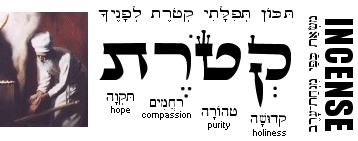
[ The following is related to this week's Torah reading (Tetzaveh). Please read the Torah portion to "find your place" here. ]
02.19.16 (I Adar 10, 5776) The last item described in the Mishkan (i.e., the "Tabernacle") was a golden "altar of incense" (מִזְבַּח הַקְּטרֶת) that was to be placed in the Holy Place just before the veil separating the Holy of Holies. Every morning and evening the High Priest would burn sacred incense on this altar (symbolizing his prayer and intercession), and the blood of atonement was also applied there during the Yom Kippur service (Exod. 30:6-10). The sages say that the word "incense" – i.e., ketoret (קְטרֶת) – can be thought of as an acronym of the words kedushah (קְדוּשָׁה), "holiness," tahorah (טָהֳרָה), "purity," rachamim (רַחֲמִים), "compassion," and tikvah (תִקוָה), "hope," characteristics that marked the passion of Yeshua who interceded for us as he offered his blood before the heavenly kapporet as our High Priest of the new covenant. Indeed, the word ketoret comes from a root word (קטר) that means to offer sacrifice, further alluding to the intercession of Messiah on our behalf (Heb. 7:25). Disciples of Yeshua are likewise called priests of God (Rev. 1:6; 1 Pet. 2:5), and our prayers and service are regarded as a "sweet-smelling savor" offered to the Lord (Rev. 8:4). As it says in the Psalms: "Let my prayer be counted as incense before You; the lifting up of my hands as the evening sacrifice."
תִּכּוֹן תְּפִלָּתִי קְטרֶת לְפָנֶיךָ
מַשְׂאַת כַּפַּי מִנְחַת־עָרֶב
ti·kon · te·fil·la·ti · ke·to·ret · le·fa·ne·kha
ma·sat · ka·pai · min·chat · a·rev

"Let my prayer be counted as incense before You;
the lifting up of my hands as the evening sacrifice."
(Psalm 141:2)

Note: The Talmud states that the sacred incense recipe was made of eleven different spices, ten of which had pleasant fragrance, but one of which (i.e., galbanum) had an unpleasant odor. The sages explain that that the word for "community" in Hebrew (i.e., tzibbur: צִבּוּר) may be understood as an acronym for tzaddikim (צַדִּיקִים), "the righteous," be'nayim (בֵּינַיִם), "the intermediate," and resha'im (רְשָׁעִים), "the wicked," and that the presence of galbanum makes place for the transgressors... The presence of an unpleasant odor in the sacred mixture represents our laments, our cries, and confession for the foulness of our sins.
Lights and Perfections...
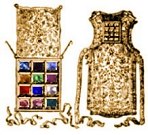
[ The following is related to this week's Torah reading, parashat Tetzaveh... ]
02.19.16 (I Adar 10, 5776) The High Priest's breastplate contained a pouch holding two mysterious gemstones called the "Urim and Thummim" (אוּרִים וְתֻמִּים), usually translated "lights and perfections." According to the Targum Jonathan, when a matter was brought to the High Priest for settlement, he would sometimes hold these before the Menorah and the Shekhinah would refract and irradiate various letters inscribed on the stones of the breastplate to reveal the will of God. Other sages, however, have said these stones were like lots (purim) used to get "yes/no" responses from the LORD (e.g., 1 Sam. 14:41, 28:6, Ezr. 2:63; Neh. 7:65). Note that the word "urim" begins with the letter Aleph (א), the first letter of the alphabet, and the word "thummim" begins with Tav (ת), the last letter, which suggests the words of Yeshua: "I AM the Aleph and the Tav (אָנכִי אָלֶף וְתָו), the Beginning and End (רִאשׁוֹן וְאַחֲרוֹן), the First and the Last" (Rev. 22:13). Our holy Scriptures declare that in these last days God has spoken to us "by his Son, whom He appointed the Heir of all things, through whom also He created the worlds" (Heb 1:2). Note that the Greek construction for the phrase translated, "by his son" is ἐλάλησεν ἡμῖν ἐν υἱῷ, which literally means "he spoke to us in Son" -- that is, in the language or voice of the Son of God Himself... God speaks in the language "of Son" from the midst of the fire revealed at Zion.
Of course we do not discern the will of God using these methods any longer, since the veil of the Holy of Holies has been removed (Matt. 27:51), and we have access to the Throne of Grace to speak with God as if panim el-panim (פָּנִים אֶל־פָּנִים), "face to face." Referring to Yeshua as our High Priest of the New Covenant it is said: "For we do not have a high priest who is unable to sympathize with our weaknesses, but one who in every respect has been tempted as we are, yet without sin. Let us then with confidence draw near to the throne of grace, that we may receive mercy and find grace to help in time of need" (Heb 4:14-15).
"Therefore, since we have confidence to enter the holy places by the blood of Yeshua, by the new and living way that he opened for us through the curtain, that is, through his flesh, and since we have a great priest over the house of God, let us draw near with a true heart in full assurance of faith, with our hearts sprinkled clean from an evil conscience and our bodies washed with pure water. Let us hold fast the confession of our hope without wavering, for he who promised is faithful." (Heb. 10:19-23)
Shabbat Shalom friends, and may we come boldly before the Throne of Grace to share our heart with our Heavenly Father this very day...
Our Duty to Truth...

02.19.16 (I Adar 10, 5776) We are "epistemologically" responsible to walk in the Spirit of truth and to reject what is false (1 John 4:6). The LORD is the God of Truth (אֵל אֱמֶת). This implies that we have a moral and spiritual duty to think clearly and not abuse our minds (Phil. 4:8; Rom. 12:2). God made us so that we could discern truth about reality. The mind functions according to logical laws because it is made in the image and likeness of God Himself... God Himself is the ground of all logic, since He created reality and structured the world to be knowable according to its laws. As it is written: "In the beginning was the word/logic (ὁ λόγος), and the λόγος was with God, and the λόγος was God" (John 1:1). God created a world that exhibits order and great beauty. And since human beings were created b'tzelem Elohim, in the image of God, our thoughts (and the words used to formulate our thoughts) as well as our actions are intended to exhibit order and beauty. People perish because "they refuse to love the truth and so be saved" (2 Thess. 2:10-12). Therefore the issue of truth - physical, moral, aesthetic, spiritual, etc. - is central to salvation itself.
᾽Εν ἀρχῇ ἦν ὁ Λόγος - "In the beginning was the Word" (i.e., logos, "logic"). Since the coherent (and intelligible) use of language presupposes the necessity and Reality of logic, every utterance we make is grounded in transcendental meaning and significance.... In the world to come you will be shocked to understand that everything you thought, everything you said, and everything you did was given to you from above, and therefore has tremendous significance. "Let the words of my mouth and the meditation of my heart be acceptable in your sight, O LORD, my Rock and my Redeemer" (Psalm 19:14).
יִהְיוּ לְרָצוֹן אִמְרֵי־פִי
וְהֶגְיוֹן לִבִּי לְפָנֶיךָ יְהוָה צוּרִי וְגאֲלִי
yi·he·yu · le·ra·tzon · im·rei · fi
ve'heg·yon · lib·bi · le·fa·ne·kha · Adonai · tzu·ri · ve'go'a·li

"Let the words of my mouth and the meditation of my heart be acceptable to You,
O LORD, my rock and my redeemer."

Hebrew Study Card
May it please God to help us use our words for the purpose of strengthening and upbuilding (οἰκοδομὴν) one another (Eph. 4:29). May our words always be gracious and "seasoned with salt" (Col. 4:6). Dear Lord, awaken our hearts. As it is written: "Whoever keeps His word, in him truly the love of God is perfected" (1 John 2:5). For more on this see: Teshuvah of the Mind, and The Importance of Truth: Teshuvah and Moral Courage.
Strength for the Weary...

02.19.16 (I Adar 10, 5776) The sages ask, "Why does the Torah use a repetitious expression, "Sanctify yourselves and you shall be holy" (הִתְקַדִּשְׁתֶּם וִהְיִיתֶם קְדשִׁים) (Lev. 11:44)? Because when we make an effort - no matter how feeble at times - to draw near to God, He will draw near to us. As we sanctify ourselves, so God sanctifies us. Therefore "let us not grow weary of doing good, for in due season we will reap, if we do not give up." (Gal. 6:9). So focus and draw near to God, and you will find that he has drawn near to you (James 4:4; Heb. 11:6). Blessed are You LORD our God, who gives strength to the weary:
בָּרוּךְ אַתָּה יְהוָה אֱלהֵנוּ מֶלֶךְ הָעוֹלָם
הַנּוֹתֵן לַיָּעֵף כּהַ
ba·rukh at·tah Adonai E·lo·hei·nu me·lekh ha'o·lam
ha·no·tein lai·ya·ef ko·ach

"Blessed are You, LORD our God, King of the universe,
who gives strength to the weary."

People necessarily value things, and therefore every person alive is a "worshipper" (i.e., a person who finds "worth" in something). The question that matters is what is your ultimate concern? What moves you to get out of bed in the morning, to go through your day, to have hope in your heart? What do you really want? Where are you really going? Each of us will stand before God for judgment one day and give account of his or her life... One day all that is hidden will be fully disclosed to the light...
Moses and Messiah...

[ The following is related to this week's Torah reading, parashat Tetzaveh... ]
02.18.16 (I Adar 9, 5776) Though Moses is of course a central character in the Book of Exodus, and indeed of the entire Torah, it is noteworthy that he is not mentioned even once in our Torah reading this week (i.e., Tetzaveh, meaning "you shall connect!") – a conspicuous absence! The focus shifts away from the social laws of Israel to the realm of the priests: how they should dress, how they should serve God, and so on. Notice how the great vision of the altar extends beyond the legislative aspects of the Torah... Therefore Yeshua said that Abraham rejoiced to see his day, and that Moses wrote of him (see John 8:56; John 5:46, Luke 24:27). Moses wrote of the Messiah directly, of course (e.g., Gen. 22:8, 49:10; Deut 18:15; etc.), though more often he wrote of him indirectly, in the "white spaces of the scroll," so to speak. For instance, God ordained that the sacrifice of the Passover lamb was to be commemorated every evening and morning, along with matzah and wine, as the central sacrifice of the Tabernacle (see Exod. 29:38-42 and Num. 28:1-6), a ritual which foreshadowed the advent of Yeshua, the Great Lamb of God (שֵׂה הָאֱלהִים) who would provide our everlasting atonement (John 1:29).
Note: If the law represents the "Tree of the Knowledge of good and evil" (note, not just knowledge of evil, but of both good and evil), then the remedy is found by partaking of the Tree of Life (עֵץ הַחַיִּים), which was also "in the midst" of the garden (בְּתוֹךְ הַגָּן) but was separate from it (Gen. 2:9). Likewise God gave the moral law at Sinai and at the same time gave the vision of the altar, the "life-for-life" exchange that overcame the demands of the moral law by sacrificial love... The Tree of Life is Messiah, who fulfills the demands of the law on our behalf and heals us from our separation from God (Rev. 22:2).
 |
Oil of Illumination...
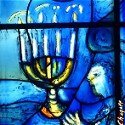
[ The following is related to this week's Torah reading, parashat Tetzaveh... ]
02.18.16 (I Adar 9, 5776) Again from our Torah portion this week (i.e., Tetzaveh) we read: "You shall command the people of Israel that they bring to you pure olive oil "crushed" for the light, that an eternal lamp (נֵר תָּמִיד) may be set up to burn" (Exod. 27:20). The Hebrew word for "pure" olive oil is zakh (זָךְ), which refers to the clearest oil derived from squeezing out (or crushing) the very first drop from the choicest olive. The purest of oil was obtained by a process of "crushing for the light" (כָּתִית לַמָּאוֹר), which symbolizes the Light of the World, the One Crushed for our iniquities, the "Man of Sorrows" (אִישׁ מַכְאבוֹת) who offered himself up for our healing and illumination (Isa. 53:1-5). Some things are seen only through the process of tribulation, breaking, and surrender. When we kindle this lamp, we are able to see the truth; we perceive how God's heart was crushed for the sake of our salvation...
Note: The Hebrew word tetzaveh (תְּצַוֶּה) means "you shall command," though the sages note that the root word can also mean making a "connection" (tzavta), which implies that the commandments were given to unite our hearts with God. "If you keep my commandments, you will abide in my love, just as I have kept my Father's commandments and abide in his love... This is my commandment," said Yeshua, "that you love one another as I have loved you" (John 15:10-12). The heart of God's Torah (i.e., his will and desire) is for you to abide in Him and for you to know how he cleaves to you... The yoke of Yeshua gives rest to the soul; his yoke is easy and his burden is light (Matt. 11:29-30).
 |
Wisdom of the Heart...

[ The following is related to this week's Torah reading, parashat Tetzaveh... ]
02.18.16 (I Adar 9, 5776) From our Torah portion this week (Tetzaveh) we read: "And you shall speak to all that are wise-hearted (כָּל־חַכְמֵי־לֵב) whom I have filled with the spirit of wisdom..." (Exod. 28:3). God's Voice is heard by those who are aware of the sacred mystery of life itself, an awareness called "the beginning of wisdom" (רֵאשִׁית חָכְמָה) and the "awe of the LORD" (יִרְאַת יְהוָה; Psalm 111:10). The sages comment that none of the people actually had the practical skills to fashion the glorious things of the sanctuary, but they had something even better, namely, reverence over the sanctity of life, and this passion enabled them to access the Holy Spirit's power to fashion what was needed. Note that God could have created the sanctuary yesh me'ayin, "out of nothing," but he wanted the heart of his people to express their desire for his presence in their midst, and therefore he invited those with a spirit of wisdom (רוּחַ חָכְמָה) to come to the task. Practically speaking being chacham-lev, "wise of heart," means receiving and revealing divine beauty in the world.
רֵאשִׁית חָכְמָה יִרְאַת יְהוָה
שֵׂכֶל טוֹב לְכָל־עשֵׂיהֶם
תְּהִלָּתוֹ עמֶדֶת לָעַד
reishit · chokh·mah · yir·at · Adonai
se·khel · tov · le'khol · o·se·hem
te·hil·la·to · o·me·det · la'ad

"The awe of the LORD is the beginning of wisdom;
all those who practice it have a good understanding:
His praise stands forever."
(Psalm 111:10)

Trusting His Heart...

02.17.16 (I Adar 8, 5776) If you can't detect God's hand in your circumstances, then trust His heart... The heart of faith affirms: gam zu l'tovah (גַּם זוּ לְטוֹבָה): "this too is for good," particularly when the present hour may be shrouded in darkness... Whenever I am confused about life (which is often enough), I try to remember what God said to Moses after the tragic sin of the Golden Calf: "I will make all my goodness pass before you and will proclaim before you my Name, 'The LORD' (יהוה). And I will be gracious to whom I will be gracious, and will show mercy on whom I will show mercy" (Exod. 33:19). God's character does not change: the LORD is the same "yesterday, today, and forever." The meaning of the Name, however, cannot be known apart from understanding the need of the heart:
יְהוָה יְהוָה אֵל רַחוּם וְחַנּוּן
אֶרֶךְ אַפַּיִם וְרַב־חֶסֶד וֶאֱמֶת
Adonai Adonai El Ra·chum ve·chan·nun
e·rekh ap·pa·yim ve·rav che·sed ve·e·met

"The LORD, the LORD, a God merciful and gracious,
slow to anger, and abounding in steadfast love and faithfulness."
(Exod. 34:6)

Download Study Card
Earlier God had revealed to Moses that the Name YHVH (יהוה) means: "He is Present" (i.e., the word is a play on the Hebrew verb hayah [הָיָה], "to be"), and therefore God is "always there" (Exod. 3:14). The great I AM (אֶהְיֶה) means God stands outside of the constraints of time, "one day is as a thousand years" and "a thousand years as one day" before Him (2 Pet. 3:8). Just as a thousand years is but "a watch in the night" (Psalm 90:4), so one day is as a thousand years. God's Spirit broods over all things and sustains the entire universe. God is "necessary being," the Source of Life, and foundation for all other existence. God's creative love and power sustain all things in creation...
Now while the idea that God is the Source of all life in the universe is surely important, it is not entirely comforting, especially in light of man's guilt and anxiety over death. After all, we do not stand before the "god of the philosophers," but rather the personal God of Abraham, Isaac, and Jacob. The meaning of the Name YHVH - that He is merciful, gracious, slow to anger, abounding in love and truth, and so on - therefore presents additional revelation in face of man's inherent brokenness and spiritual need. Some things in life are only known in the passion of faith... things like love, beauty, honor, and so on. The Name of the LORD as the Compassionate One is only known in humility, when all human pretense is stripped away and the inner life is laid bare in its desperate need. The Name YHVH is God's response to the heart's cry for deliverance, for compassion, for mercy....
What is God like - what is His heart - is the first question, and how we answer that will determine how we deal with all the other questions that come up in theology... What do you feel inside when you stare up at the ceiling before you go to bed? In light of the ambiguity and heartaches of life we might wonder if God is there for us. Does God care? Is He angry at me? Does He really love me? This is the raw place of faith, where we live in the midst of our questions. The Name YHVH means "He is present," even when we are unconscious of His Presence in the hour of our greatest need.
The legalist is actually enslaved to the idea of God's conditional acceptance. His deep creed is: "If you (outwardly) obey, then you belong." The message of the cross scandalizes the realm of the outwardly religious because it boldly states, "if you believe, then you belong..." As Kierkegaard rightly observed, "And this is the simple truth - that to live is to feel oneself lost. He who accepts it has already begun to find himself, to be on firm ground. Instinctively, as do the shipwrecked, he will look around for something to which to cling, and that tragic, ruthless glance, absolutely sincere, because it is a question of his salvation, will cause him to bring order into the chaos of his life. These are the only genuine ideas; the ideas of the shipwrecked. All the rest is rhetoric, posturing, farce." For Kierkegaard, religious rituals devoid of a sense of crisis within the heart are little more than a sham. "I think of the times I tried to use him to make my life secure, and undisturbed, and painless. Also the times I was enslaved by fear of him, and by the need to protect myself against him through rites and circumstances" (de Mello). Religious behavior (i.e., rituals, ceremonialism, etc.) is a tawdry substitute for trusting that God's heart (YHVH) is forever present for you.
 |
What do you Seek?

02.17.16 (I Adar 8, 5776) Some people want to know "theology" or to glean insights from the Scriptures not for the sake of serving God, but as a way to feel good about themselves, to flatter their egos, etc. We have to examine our motives. Do you really want to know the truth, and if so, why? Are you able to get beyond your own self-interest to hear what the Spirit of God might be saying? What do you hope to do with revelation that may be disclosed to you? Do you seek to know for the sake of making something of yourself, or perhaps to make you feel superior to others? Do you think of truth as a weapon to prove that you are right rather than as the means of living a life of righteousness? Again, take account of your motives. "For if anyone thinks he is something, when he is nothing, he deceives himself" (Gal. 6:3). To seek the truth for the sake of feeding the ego misses the point and can lead to self-deception.... Knowledge and truth are essential, of course, but if they are not employed in the service of love – to build up others, to bring healing, hope, and kindness – then they can be dangerous to the spiritual life. "If anyone imagines that he knows something, he does not yet know as he ought to know" (1 Cor. 8:2). There is an "oughtness" in the way we are to know, and that is our duty to humbly walk in love...
אַל־תְּהִי חָכָם בְּעֵינֶיךָ
יְרָא אֶת־יְהוָה וְסוּר מֵרָע
al · te·hi · cha·kham · be·ei·ne·kha
ye·ra · et · Adonai · ve·sur · me·ra

"Be not wise in your own eyes;
fear the Eternal, and turn away from evil."
(Prov. 3:7)

Not everyone who is naturally endowed with brilliance, charisma (charm), or eloquence should be a teacher, friends... Indeed, there are countless people out there "serving God" as teachers or preachers when they were not so called, and that invariably leads to trouble for many. As it is written: "Woe unto them that are wise in their own eyes, and prudent in their own sight" (Isa. 5:21). The "fear of the Lord" – yirat HaShem - serves as a corrective of all-too-human arrogance, pride, and presumption.
Endurance to Hope...
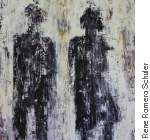
02.17.16 (I Adar 8, 5776) Though we are optimistic about the purpose and end of reality, and though we believe that God "works all things together for good" (Rom. 8:28), we are not therefore monistic idealists, that is, those who say that evil is not real or who claim that it is "part of God." We are given "exceedingly great and precious promises," yet in this world we suffer and experience pain, heartache, and troubles. Yeshua said "in this world you will have tribulation," though that is not the end of the story, of course, for there is the cheer of God's' victory, even if we must repeatedly ask God for grace to endure our troubles without murmuring (John 16:33; Heb. 4:16). I realize that is often difficult, and some of you might be within the fiery furnace even now. You might be asking, "Where are you, Lord, in all of this? Why don't you bring me out of these troubles?" In such testing you need endurance (ὑπομονή) to hold on to hope, remembering that God uses affliction to refine you for good. As Paul said, "We rejoice in our sufferings, knowing that suffering produces endurance, and endurance produces refined character, and refined character produces hope" (Rom. 5:3-4). Each of us is still upon the "Potter's wheel," and God's hand continues to shape us into vessels that one day will reveal his glory and honor. "The LORD will give strength to his people; the LORD bless his people with peace" (Psalm 29:11).
יְהוָה עז לְעַמּוֹ יִתֵּן
יְהוָה יְבָרֵךְ אֶת־עַמּוֹ בַשָּׁלוֹם
Adonai · oz · le·am·mo · yit·ten
Adonai · ye·va·rekh · et · am·mo · va·sha·lom

"The LORD will give strength to his people;
The LORD will bless his people with peace."
(Psalm 29:11)

Hebrew Study Card
Keep holding on, dear friends! The Lord our God is faithful and true. He gives us acharit v'tikvah (אַחֲרִית וְתִקְוָה), "a future and a hope" (Jer. 29:11).
Priests of His Light...

02.16.16 (I Adar 7, 5776) Our Torah portion this week (i.e., Tetzaveh) describes the ceremony of consecration to the priesthood. We are chosen to be a "kingdom of priests," a set-apart people, and a light to the nations (Exod. 19:6; Isa. 42:6; 1 Pet. 2:9). Note the very first responsibility given to the priests was to care for the ner tamid (נר התמיד), the light of the Menorah (Exod. 27:20-21), which represents our consciousness of the Divine Presence (Psalm 18:28; 36:9). The challenge we all face is to remain "in the light as God is in the light" and not to be seduced by the world of fleeting appearances (Isa. 2:5; 1 John 1:7, 2:17). God's eternal light radiates through all things (Isa. 6:3; Psalm 139:11-12), just as the great "yehi ohr" (יְהִי אוֹר) - "Let there be light" - is the first word spoken to creation (Gen. 1:3). To be a priest means being so filled with the truth that you radiate peace; your inner light shines and you glorify your Father in heaven (Matt. 5:16). That is how we draw others to the truth, by receiving and celebrating the beauty of the LORD (Psalm 27:4).
Of course being a "witness to the light," that is, being a "priest," does not mean you are a "perfect person" who walks about with a blissed-out attitude despite the various trials and tests we all face in this life. No, we all still sin, and we therefore need to confess the truth of our condition to abide in the light (1 John 1:9; James 5:16). Like everything else in Scripture, here we encounter paradox, as Yeshua taught: "Blessed are the impoverished in spirit (πτωχοὶ τῷ πνεύματι), for theirs is the kingdom of heaven; blessed are the ones who mourn (οἱ πενθοῦντες), for they shall be comforted; blessed are the meek (οἱ πραεῖς), for they shall inherit the earth" (Matt. 5:3-5). Yea, "God chose what is foolish in the world to shame the wise; God chose what is weak in the world to shame the strong, God chose what is low and despised in the world, even things that are not, to bring to nothing things that are, so that no human being might boast in the presence of God" (1 Cor. 1:27-29).
The Hebrew word for priest (i.e., kohen: כּהֵן) may come from the word ken (כֵּן) meaning "yes" and the word kivun (כִּווּן) meaning to "direct" or "lead," implying that a priest helps direct a person toward affirming the Reality and Truth of God. The role of a priest is to draw us to God, then, but how is that possible if such a mediator cannot genuinely understand our sorrows and struggles? What draws others to God is his love, but how can we come to believe in that love were it not for the priesthood of the leper, the priesthood of the outcast, the priesthood of the reject? Even so Yeshua was afflicted with our infirmities and therefore sympathizes with our brokenness and frailty (see Heb. 4:16).
As a priest of brokenness, you are called to be a wounded healer, and you can testify of God's saving grace and love for you despite your sorrow, anger, weaknesses, and failures... Accepting God's compassion for you - just as you are - allows you to show grace and kindness to others who are also hurting, and therefore you can serve as a priest of God.
אֱלהִים יְחָנֵּנוּ וִיבָרְכֵנוּ
יָאֵר פָּנָיו אִתָּנוּ סֶלָה
E·lo·him · ye·cho·nei·nu · vi·va·re·khei·nu
ya'eir · pa·nav · it·ta·nu · se·lah

"May God be gracious to us and bless us
and make his face to shine upon us, Selah"
(Psalm 67:1)

Be encouraged, friends... "For the commandment is a lamp and Torah is light, and the reproofs of discipline are the way of life" (Prov. 6:23). Here we may understand the "reproofs of discipline" as the (ongoing) process of consciously turning away from darkness (of fear, anger, etc.) to the behold the divine light. We have to start here, after all... The way of life is teshuvah (repentance, turning to God), which is a painful process to the lower nature, but is necessary to walk in the light. Confession brings light into our hearts (James 5:16; 1 John 1:5-9), and the end of our struggle is healing and life.
Personal Update: Our baby Emanuel is sick and we ask for your prayers... If his health doesn't improve soon, he will need to be hospitalized. Thank you for praying.
From You we Give...
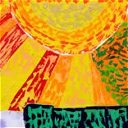
02.15.16 (I Adar 6, 5776) If God asks us to give, then know that He is assuredly a Giver; if he appeals for our heart, then know He is assuredly a Lover; and if he asks us to listen (shema), then know he heeds our hearts in return. Everything belongs to Him; and all that you ever experience comes from his gracious hand: "For from him and through him and to him are all things. To him be glory forever. Amen" (Rom. 11:36). When we give to God, we are like a child giving his parents a present, purchased, however, with what the child has received from his parents: As David said, "But who am I, and what is my people, that we should be able thus to offer willingly? For all things come from You (כִּי־מִמְּךָ הַכּל), and from your hand we give to you" (1 Chron. 29:14). Whatever we give for the sake of love always returns to us in grace. This is the meaning of the verse, "to you, O Lord, is lovingkindness; for you reward each according to his work" (Psalm 62:12).
Names upon his heart...

[ The following is related to this week's Torah reading, parashat Tetzaveh... ]
02.14.16 (I Adar 5, 5776) The onxy stones attached to the shoulder pieces of the High Priest's vest (i.e., ephod: אֵפד) and the twelve precious stones arrayed on his breastplate (i.e., choshen: חשֶׁן) were inscribed with the names of the tribes of Israel. "And Aaron shall bear their names before the LORD on his two shoulders for remembrance" (Exod. 28:12). "So Aaron shall bear the names of the sons of Israel in the breastpiece of judgment (i.e., choshen ha'mishpat: חשֶׁן הַמִּשְׁפָּט) upon his heart, when he goes into the Holy Place, to bring them to regular remembrance before the LORD (Exod. 28:29). The sages comment that just as a father carries his young child on his shoulders, or a shepherd his lamb, so the High Priest carried his people before the LORD in intercession. Similarly, at the cross Yeshua carried our names on his shoulders, bearing the burden of our sins as he cried out before the Father. As our great High Priest of the New Covenant, Yeshua "bore the judgment of the people upon his heart" as he made intercession for them (Isa. 53:12; Rom. 8:34).
"Behold, I have engraved you on the palms of my hands" (Isa. 49:16); "set me as a seal upon your heart, as a seal upon your arm" (Song 8:6).
 |
Ordination of Israel's Priests...

[ The following is related to this week's Torah reading, parashat Tetzaveh... ]
02.14.16 (I Adar 5, 5776) Last week's Torah portion (Terumah) explained that God had asked for a "donation" (i.e., terumah) from the people for the sake of creating a portable, tent-like sanctuary called the Tabernacle. God then showed Moses the pattern according to which the Tabernacle and its furnishings were to be made. First the Ark of the Covenant (and its cover called the kapporet) would occupy an inner chamber called the Holy of Holies. Within an adjoining chamber (called the Holy place) a Table would hold twelve loaves of matzah and a seven-branched Menorah (מְנוֹרָה) would illuminate the tent. God gave precise dimensions of the tent with the added instruction to separate the Holy of Holies by a veil called the parochet. The entire tent was to have a wooden frame covered by colored fabric and the hide of rams and goats. Outside the tent an outer court was defined that would include a copper sacrificial altar and water basin. The outer court was to be enclosed by a fence made with fine linen on silver poles with hooks of silver and sockets of brass.
This week's Torah portion (Tetzaveh) continues the description of the Tabernacle, or the Mishkan (הַמִּשְׁכָּן), though the focus shifts to those who will serve within it, namely the "kohanim," or the priests of Israel. First, however, Moses was instructed to tell the Israelites to bring pure olive oil (שֶׁמֶן זַיִת זָךְ) for the lamps of the Menorah, which the High Priest was responsible to light every evening in the Holy Place. Next God commanded Moses to publicly ordain Aaron and his sons as priests and described the priestly garments they would wear while serving in the Tabernacle.
כִּי־טוֹב יְהוָה לְעוֹלָם חַסְדּוֹ
וְעַד־דּר וָדר אֱמוּנָתוֹ
ki · tov · Adonai · le·o·lam · chas·do
ve·ad · dor · va·dor · e·mu·na·to

"For the LORD is good; His steadfast love is eternal;
His faithfulness is for all generations."
(Psalm 100:5)

Download Study Card
All priests were required to wear four garments – linen breeches, tunics, sashes, and turbans, but in addition to these the High Priest (Kohen Gadol) was to wear a blue robe that was decorated with pomegranates and golden bells. Over this robe, an ephod – an "apron" woven of gold, blue, purple, and crimson – was to be worn, upon which was attached a "breastplate" (choshen mishpat) inlaid with precious stones inscribed with the names of the 12 tribes of Israel. The ephod also contained a pouch holding two unique gemstones called the urim v'tummin (אוּרִים וְתוּמִּים), usually translated as "lights and perfections." According to the Targum Jonathan, when a matter was brought to the High Priest for settlement, he would sometimes hold the urim (from אוֹר, "light") and tummin (from תָּם, "integrity" or "completeness") before the menorah and the Shekhinah would irradiate various letters inscribed on the gemstones to reveal the will of God. Finally, the High Priest would wear a golden plate (called a "tzitz") engraved with the words, "Holy to the LORD" (קדֶשׁ לַיהוָה) upon the front of his turban.

The priests were to be ordained in a seven-day consecration ceremony that involved washing, dressing, and anointing them with oil and blood, followed by the offering of sacrifices. The priests were further instructed to present burnt offerings twice a day upon the copper altar. The portion ends with a description of the Golden Altar (i.e., Altar of Incense) upon which incense was offered twice a day by the priests when the Menorah lamps were serviced. In addition, the blood of atonement was to be placed on its corners once a year, during the Yom Kippur ritual.
A Holy Desperation...
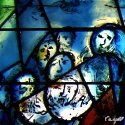
02.12.16 (I Adar 3, 5776) Do you have the "gift of holy desperation"? That's the special blessing of needing God so viscerally that you otherwise will fall apart or self-destruct apart from His daily intervention in your life... Do you sense your need for deliverance "in the kishkes," that is, in your gut? Do you pray because your very life depends on it? The Torah says that the fire on the altar was to be kept burning at all times (Lev. 6:12-13), which symbolizes esh tamid (אֵשׁ תָּמִיד), or the inner fire of the heart... How blessed it is to be full of the fire of this inner need, this relentless groaning, this constant hunger to be set free: As Job yearned: "All the days of my warfare I hope, until my change will come" (Job 14:14).
So what shall we do in the meantime, as we live in the "already-not-yet" realm of faith? In many ways we offend others. We are damaged, wounded, and much within us awaits healing. So we turn to God again and again, up to 70 x 70 times, if necessary, and keep seeking, despite ourselves. We learn to "endure ourselves" and tolerate our own imperfections, forgiving ourselves, for as long as we pretend that we are not subject to the faults common to others, we are liable to be controlled by them.
Shabbat shalom, chaverim... Keep hope alive, for our change will indeed come! Amen.
 |
Shrine of the Heart...
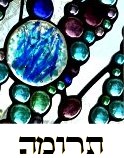
[ The following is related to this week's Torah reading, parashat Terumah... ]
02.12.16 (I Adar 3, 5776) The sages have said that salvation may be likened to rebirth that delivers us from the "narrow places of Egypt" (i.e., from mitzrayim: -מ, "from," and צַר, "narrow") into newness of life... The first step of lasting deliverance (יְשׁוּעָה) is to receive the great revelation: "I AM the Lord your God," which begins our healing process (Exod. 20:2). We are set free from our bonds to surface appearances when we are made fully conscious of God's Presence, since we then understand everything in holy relationship with Ultimate Reality, the Ground and Source of all life (Acts 17:28). As it says in our Scriptures: "We look not to the things that are seen but to the things that are unseen: For the things that are seen are transient, but the things that are unseen are eternal" (2 Cor. 4:18). Therefore God says in our Torah, "Make for me a sacred place (מִקְדָּשׁ) so I can dwell within you" (Exod. 25:8). Each of us is created to be a "mishkan," that is, a dwelling place for God. Making a sanctuary of the heart means choosing to stay connected with reality, attuning the heart to hear the Voice of the Spirit, and consciously walking before the Divine Presence.
The Hebrew word terumah (תּרוּמָה), the name of our Torah portion, means "gift" or "contribution," which first of all refers to the decision to give of our hearts to enshrine God's Presence. We "set the LORD always before us"; we abide in the Vine and remain connected to Him (Psalm 16:8; John 15:5). It two-way partnership: we seek a home for God within our heart, we invite his Presence, so to speak, to dwell within us, and then we listen for God's invitation to come, to abide within his house and live as his beloved child (Rev. 3:20).
King David wrote, עוֹלָם חֶסֶד יִבָּנֶה / olam chesed yibaneh: "The world is built with love" (Psalm 89:2), and so indeed is God's place within our hearts... We make God lovely and beautiful and wonderful and precious to us; we enshrine him and lift up our souls unto him in adoration and thanks. When we are willing to take part in the building of the sanctuary, God reveals to us "the pattern," that is, the inspiration that evidences His presence in our lives. As Yeshua said, "Let your light so shine" (Matt. 5:16). May God give us a willing spirit! Amen.
 |
Hidden Treasures...

02.12.16 (I Adar 3, 5776) The message of the gospel is that God sees the hidden beauty, worth, and value of your life. "The kingdom of heaven is like a merchant in search of fine pearls, who, on finding one pearl of great value, went and sold all that he had and bought it" (Matt. 13:45-46). You may be tempted to identify with the merchant and regard this parable as a challenge for you to give up everything to obtain the surpassing worth of the kingdom of heaven, but another way to understand it is to see God as the merchant, the central character of the story.... Instead of you paying the great price for the pearl, turn the story around: God pays the price - and you are regarded as His choice pearl! You are a treasured possession, the "apple of God's eye..."
Trust and Affliction...

02.11.16 (I Adar 2, 5776) Sometimes in our afflictions we may feel lost, confused, and uncertain of ourselves. We dare not doubt God's love for us, though we may wonder how He might use such affliction to mend our hearts... As C.S. Lewis once said, "We are not necessarily doubting that God will do the best for us; we are wondering how painful the best will turn out to be" (Letters of C.S. Lewis, 1964). There is a trust issue in suffering, and an intimacy that comes through its fires. As Kierkegaard reminds us, "It is one thing to conquer in the hardship, to overcome the hardship as one overcomes an enemy, while continuing in the idea that the hardship is one's enemy; but it is more than conquering to believe that the hardship is one's friend, that it is not the opposition but the road, is not what obstructs but what develops, is not what disheartens but ennobles" (Four Upbuilding Discourses, 1844).
The Power to Change...
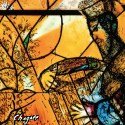
02.11.16 (I Adar 2, 5776) When King David cried out, lev tahor bera-li, Elohim: "Create in me a clean heart, O God" (Psalm 51:10), he did not use the Hebrew word yatzar (יָצַר), which means to "fashion" or "form" something from preexisting material, but he instead used the word bara (בָּרָא), a verb exclusively used to refer to God's creation of the cosmos (Gen. 1:1). David understood that no amount of reformation of his character would be enough, and instead appealed to that very power of God that created the worlds yesh me'ayin (יֵשׁ מֵאַיִן), "out of nothing." Such was the nature of the remedy required...
לֵב טָהוֹר בְּרָא־לִי אֱלהִים
וְרוּחַ נָכוֹן חַדֵּשׁ בְּקִרְבִּי
lev · ta·hor · be·ra·li · E·lo·him,
ve·ru·ach · na·khon · cha·desh · be·kir·bi

"Create for me a pure heart, O God,
and renew a right spirit within me"
(Psalm 51:10)

Hebrew Study Card
Yeshua taught, "Blessed are the pure in heart, for they shall see God" (Matt. 5:8). The Greek word translated "pure" is katharos (καθαρός), sometimes used describe the cleansing of a wound (catharsis), or to describe the unalloyed quality of a substance revealed through refining fire. Metaphorically, then, purity of heart refers to separation from the profane - singleness of vision, wholeheartedness, passion, and focused desire for the sacred. As we center our affections on Yeshua, we become pure in heart -- i.e., unified, made whole, and healed of our inner fragmentation. We see the Lord both in this world, through his effects, and then panim el panim (פָּנִים אֶל־פָּנִים), "face to face," in the world to come. Our hope purifies us for that coming great day of full disclosure (1 John 3:2-3; Heb. 12:14).
If we are impure of heart, we will be inwardly divided, unfocused, fragmented, filled with destabilizing anxiety, envy, unresolved hurt, anger, and so on. More tragically, because we seek to escape ourselves, we will be devoid of a true center, without a focal point or abiding purpose, and therefore we will be lost to ourselves, wandering and without rest...
 |
Half-Cubits and Mystery...
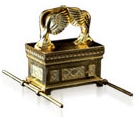
[ The following is related to this week's Torah reading, parashat Terumah... ]
02.10.16 (I Adar 1, 5776) The Ark's dimensions were given in fractional measurements, "half-cubits" used to describe its length, width, and height: "They shall make an ark of acacia wood (עֲצֵי שִׁטִּים). Two cubits and a half (וָחֵצִי) shall be its length, a cubit and a half its breadth, and a cubit and a half its height" (Exod. 25:10). The sages comment that the "half-cubit" is symbolic of our fractional understanding, alluding to mystery and even paradox. "You shall overlay it with pure gold, inside and outside shall you overlay it, and you shall make on it a crown of gold (זֵר זָהָב) around it" (Exod. 25:11). The heart of the Tabernacle held the law of God, a picture of Yeshua who bore the law of God within his heart (Matt. 5:17-18). And though the Ark was made of wood from the common thorntree, it was covered inside and out with pure gold and bore a "crown" where the sacrificial blood was offered for atonement, a picture of Yeshua who clothed himself in our humanity, bore the crown of thorns, and shed his blood for our eternal atonement (Heb. 9:12).
Note that the Hebrew text says "they shall make an ark of acacia wood" (Exod. 25:10). Unlike other furnishings of the Tabernacle that were made by Betzalel, the text uses the plural verb here: "they shall make an ark" (וְעָשׂוּ אֲרוֹן), which implies that every person had a part in upholding the Torah. More - each person had a part in the place of blood atonement offered upon the kapporet - the cover of the Ark - which again symbolizes how Yeshua offered his life for the sins of the whole world (1 John 2:2).
 |
The Torah of Love...
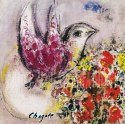
02.10.16 (I Adar 1, 5776) God does not love you based on your obedience, but his love for you will lead you to obedience... It is only after accepting that you are accepted despite yourself -- despite your inherent inability to please God, despite your incurably sick heart, despite your disobedience, sin, and so on -- it is only then that earnest, Spirit-enabled obedience may spontaneously arise within your heart. In that sense "obedience" is like falling in love with someone. It is your love that moves you to act and to express your heart, and were you prevented from doing so, you would undoubtedly grieve over your loss... Therefore the "law of the Spirit of Life in Messiah" is first of all empowered by God's grace and love. We walk by faith, hope, and love - these three. And this explains why the very first step of teshuvah (repentance) is to love God: Shema! Va'ahavta et Adonai... The first work of faith is to believe in the miracle that God's love is "for-you-love..."
If you still find yourself operating from a sense of God's conditional acceptance, you will likely repeat the same sins over and over until your heart is finally convinced of its incurably wretched state. You must first be utterly sick of yourself to believe in the miracle of God's deliverance. Only after this does the good news of the gospel find its opportunity to speak...
 |
Walk in the Spirit...

02.10.16 (I Adar 1, 5776) Our theology teaches that God is "omnipresent," or always present everywhere (בְּכָּל מָקוֹם), but much of the time we seem disconnected and lose touch with spiritual Reality. After all, it's one thing to "know about" God, and quite another to experience the sacred in our daily experience... Perhaps we miss detecting the Divine Presence because we are not seeing correctly (2 Cor. 5:7). We tend to "objectify" the natural world and thereby distance ourselves from the atmosphere of the Spirit and the flow of grace (i.e., ruach: "wind," "spirit"). Instead of understanding that we "live, move, and have our being" in God (Acts 17:28), we regard God as "out there," far away, and inaccessible to our reach... The Hebrew word "teshuvah" (תְּשׁוּבָה), often translated as "repentance," really means accepting the heavenly invitation to turn away from ourselves to receive God's love and grace. The Greek word "metanoia" (μετάνοια) conveys a similar idea - going "beyond" (i.e., meta: μετά) our everyday thinking (i.e., nous: νοῦς) to apprehend the realm of miracle, wonder, and love. We then become attuned to the Divine Presence as we turn or elevate our thinking from the realm of "this world" (olam ha'zeh) and its objectivity to one of spiritual receptivity, wholeness, and blessing (olam ha'ba). Teshuvah therefore is an (ongoing) awakening to the Reality of God, and knowing ourselves through our connectedness to Him rather than objectifying ourselves and experiencing alienation and distance. In our Torah portion this week (Terumah), God asked for a contribution from every heart that was moved (Exod. 25:2), which may be understood to mean that every moment may be transformed into a "dwelling place" for God, a time of communion with the Spirit, as we direct our hearts toward Him.
שִׁוִּיתִי יְהוָה לְנֶגְדִּי תָמִיד
כִּי מִימִינִי בַּל־אֶמּוֹט
shiv·vi·ti · Adonai · le·neg·di · ta·mid
ki · mi·mi·ni · bal · e·mot

"I have set the LORD always before me;
because he is at my right hand, I shall not be shaken"
(Psalm 16:8)

Hebrew Study Card
The devil's strategy is as banal as it is tedious, namely, to entice us to forget the truth of God and to live in a state of virtual exile and pain. Therefore Shema - listen and remember - is the basic commandment. Since the LORD is the Center of all that is real, to become anxious is to "practice the absence" of God's presence instead of practicing His Presence. We have to remember the future, as well as the present and past...
Light of the Menorah...
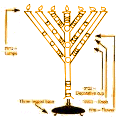
02.09.16 (Shevat 30, 5776) The holy menorah (מְנוֹרָה) was formed from one piece of pure beaten gold weighing 3,000 shekels of silver (nearly 100 pounds). It was a highly decorative work that had seven branches (with seven lamps), nine flower blooms, eleven fruits, and twenty two cups. The light from the Menorah was a spiritual light. It was not seen from the outside of the Tabernacle, but only while inside the holy chamber, before the holy place of sacrificial atonement. It enabled service to God to be performed, though it was not a light to be used for profane purposes. Notice that the six lamps faced the central lamp -- a picture of Yeshua, the Light of the World whose arms and legs were "hammered" for our sins.... He is the suffering servant (shamash) who lightens everyone in the world. He is the center, the supporting trunk for the other branches (John 15:5).
The physical light came from the burning of pure olive oil - a symbol of anointing and the Holy Spirit (רוּחַ הַקּדֶשׁ). It was kindled by the hand of a man of peace and humility. Likewise, when we are given light to behold the sacrifice of Yeshua for our atonement (כַּפָּרָה), we are filled with the divine light (John 8:12; 1 John 1:7, Eph. 5:8). When we come to the cross, we can behold the truth of God's unfailing love that draws us to be united with Him.
For more on this topic, see "The Light of the Menorah: Further thoughts on Terumah."
 |
Shadows and Substance...

[ The following is related to this week's Torah reading, parashat Terumah... ]
02.09.16 (Shevat 30, 5776) The earthy Tabernacle and its furnishings were designed to be "signs" and "shadows" of heavenly realities (Heb. 8:5). Moses was repeatedly commanded to make the Sanctuary according to the "pattern" revealed at Sinai (Exod. 25:9,40). At the inmost center of the earthly Tabernacle, the place symbolizing utmost holiness, was the Ark of the Covenant (אֲרוֹן־הַקּדֶשׁ), a "three-in-one" box that held the tablets of the covenant. The Ark served as a symbol of kisei ha-kavod (כִּסֵּא הַכָּבוֹד), God's Throne of Glory, since it stood entirely apart as the only furnishing in the Holy of Holies (קדֶשׁ הַקֳּדָשִׁים). Upon the crown or cover of the Ark (i.e., the kapporet) were fashioned two cherubim (i.e., angel-like figures) that faced one another (Exod. 25:17-18). According to the Talmud (Succah 5b), each cherub had the face of a child - one boy and one girl - and their wings spread heavenward as their eyes gazed upon the cover (Exod. 25:20; 1 Pet. 1:12). It was here - in the midst of sacred innocence, humility, purity, and hope - that the sacrificial blood was offered to make atonement for our sins, and it was here where God's Voice would be heard (Exod. 25:22; Num. 7:89). In the very heart of the Sanctuary, then, we see the Word of God and the sacrficial blood, foreshadowing the glory of the eternal redemption secured by Yeshua. As is written in our Scriptures: "For Messiah has entered, not into holy places made with hands, which are representations (ἀντίτυπος) of the true things, but into heaven itself, now to appear in the presence of God on our behalf" (Heb. 9:24).
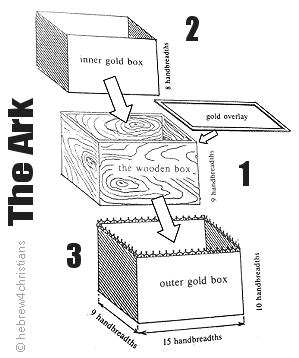 |
Note: The Ark is described as a "three-in-one" box because it was a wooden one set inside a gold one, with another gold one set inside the wooden one -- three boxes made one. Metaphorically this symbolizes Yeshua's humanity (the wood, the Tree of Life) surrounded above and within by God the Father and the Ruach HaKodesh...
Out of the Depths...
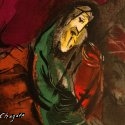
02.09.16 (Shevat 30, 5776) Some of us want "mountain top" experiences of God, but more often than not we learn "down in the valley," where the daily cares of life encroach upon our ideals and visions. Yet it is precisely there, in the "desert of the everyday," in the "testing of the tedious," in the "hazards of hopelessness," that we are enabled to elevate our consciousness to realize that God is "ezra ve'tzarot nimtza me'od" (עֶזְרָה בְצָרוֹת נִמְצָא מְאד) - a "very present help in our troubles" (Psalm 46:1). Amen, God is aware of our frustration, our lowliness, our fear, our suffering... When God delivered his people by the miracle of splitting the sea (קריעת ים סוף), he closed off any way of escape apart from his direct intervention. The Egyptian army was behind them, the mountains hemmed them in, and the vast horizon of the sea loomed before their way. The only way of deliverance was from above, in the midst of our struggle, by God's own hand. Trust in God's healing and deliverance is the first step... The LORD is the Rock and all his ways are perfect (Deut. 32:4), and this must be affirmed especially if we cannot fathom the testing of our present circumstances...
Note: I wrote this post while suffering from a fever, experiencing breathing difficulties, and struggling in the "ash heap" of sickness. Giving God thanks for our afflictions is kiddush HaShem (Psalm 119:71). We choose to trust Abba's heart, even if we can't see his hand....
 |
Vision and Substance....

[ The following is related to this week's Torah reading, parashat Terumah... ]
02.08.16 (Shevat 29, 5776) Though Moses was instructed to make the Tabernacle according to the "pattern" revealed at Sinai (Exod. 25:9,40), King David -- by direct revelation of the Holy Spirit -- later changed the size of the Tabernacle and its vessels, made additions to the original design, and even changed the priestly order of service itself (see 1 Chron. 28:11-20). King David's vision shows us that both the structure and service of the Tabernacle were provisionally intended to give physical expression to a deeper spiritual reality, and indeed the New Testament calls the service of the Temple "a copy and shadow (ὑποδείγματι καὶ σκιᾷ) of the heavenly things" (Heb. 8:5). But what were these heavenly things if not the ministry of Yeshua as our High Priest of the New Covenant? The New Covenant (בְּרִית חֲדָשָׁה) is called a "better covenant based on better promises" (Heb. 8:6), that was "not like the covenant that I made with their fathers on the day when I took them by the hand to bring them out of the land of Egypt" (see Jer. 31:31-33). Our Scriptures comment: "In speaking of a new covenant, he has made the first one obsolete, and what is becoming obsolete and growing old is ready to vanish away" (Heb. 8:13). Likewise we read, "When Messiah appeared as high priest of the good things that have come, then through the greater and more perfect tabernacle (not made with hands, that is, not of this creation), he entered once for all into the holy places, not by means of the blood of goats and calves but by means of his own blood, thus securing an eternal redemption" (Heb. 9:11-12). The earlier Levitical priesthood and its sacrificial system was "a shadow (σκιᾷ) of the good things to come, and not the true form (i.e., substance) of these realities" (Heb. 10:1).
For more on this, see "Shadows and Substance: Further Thoughts on Terumah."
 |
Walking Through the Shadows...

02.08.16 (Shevat 29, 5776) The Spirit cries out, "The grass withers, the flower fades, but the word of our God will stand forever" (Isa. 40:8). This verse sets up a great contrast between olam ha-zeh and olam haba – between this present world and the heavenly realm. King David states, "Behold, you have made my days a few handbreadths, and my lifetime is as nothing before you (וְחֶלְדִּי כְאַיִן נֶגְדֶּךָ). Surely all mankind stands as a mere vanity" (Psalm 39:5). Yet we hunger and ache for love that fulfills the infinite depth of our hearts: "My soul yearns for you in the night; my spirit within me earnestly seeks you (Isa. 26:9). I say to the LORD, "You are my Lord; I have no good apart from you" (Psalm 16:2). Our hearts are restless until they find their rest in God, the Eternal, the abiding, and true...
For me, heaven doesn't mean walking streets of gold, living in heavenly mansions, or wearing crowns of glory. These things are pictures to help us envision something deeper still. After all, what would "heaven" be if you were on the outside looking in? If it is anything at all, heaven is a sense of home, of acceptance, a place where you are "inside out" and yet completely loved. In short, heaven is nothing less being loved and accepted by the Lord, and hearing him say, "I love you; you belong to me; I call you my friend..."
מִי־לִי בַשָּׁמָיִם וְעִמְּךָ לא־חָפַצְתִּי בָאָרֶץ
כָּלָה שְׁאֵרִי וּלְבָבִי צוּר־לְבָבִי וְחֶלְקִי אֱלהִים לְעוֹלָם
mi-li · va·sha·ma·yim · ve·im·me·kha · lo-cha·fatz·ti · va·a·retz
kal·lah · she·ei·ri · u·le·va·vi · tzur-le·va·vi · ve·chel·ki · E·lo·him · le·o·lam

"Whom have I in heaven but you?
And there is nothing on earth that I desire besides you.
My flesh and my heart may fail,
but God is the strength of my heart and my portion forever."
(Psalm 73:25-26)

Hebrew Study Card
With God's love we have everything we need - even should we experience temporal lack; but without it we are truly destitute - even should we gain everything the world affords. "For what will it profit a man if he gains the whole world and forfeits his soul?" (Matt. 16:26)
Sanctuary of the Heart...

[ The following is related to this week's Torah reading, parashat Terumah... ]
02.07.16 (Shevat 28, 5776) "Let them make for me a sanctuary (מִקְדָּשׁ) that I may dwell in their midst" (Exod. 25:8). The sages note that the phrase, "that I may dwell in their midst" could be translated as "that I may dwell within them" (וְשָׁכַנְתִּי בְּתוֹכָ), suggesting that the point of the Tabernacle was to bring God within the hearts of His people... We must create a place within our hearts, in other words, for God to dwell within us... Yeshua likewise told us that we would experience God's abundant peace and joy when we would "abide in Him." Note that the gematria of the word Tabernacle (i.e., mishkan: מִשְׁכָּן) is 401, which is the same value as the word shema (שְׁמַע), "hear!" or "listen" (Deut. 6:4). When we really stop to listen to the LORD, we will find His glorious and loving Presence in our midst (Isa. 6:3).
The deepest message of the sanctuary, however, reveals God's sacrificial love, just as the purpose for the sacrificial system itself was to draw us close to God. The symbolic "life-for-life" exchange of an innocent life for the sake of a sinner provided tangible hope that a holy and perfectly righteous God would make a way for his love and acceptance to triumph over his righteous judgment (Psalm 85:10). Indeed the idea of "sacrifice" is korban (קרְבָּן), a word that means to draw near (karov) to God. The New Testament states that the various sacrificial rituals were "examples" (ὑπόδειγματα) and "shadows" (σκιάς) of the heavenly Reality that would be given in the sacrifice of Yeshua, the great Lamb of God (Heb. 8:5; 10:1), and indeed the central sacrifice at the sanctuary was the daily sacrifice (i.e., korban tamid) of a defect-free male lamb with matzah and wine (Num. 28:1-8).
Through Yeshua God draws near to us so that we can draw near to Him.... He is the "it-is-finished" offering that brings us eternal life. Yeshua is the Father's "gift of the heart" (i.e., terumah) given for you. It was the love of God that provided the provisional altar at the Tabernacle, just as his love put the blood of his Son on the cross. Both in the sacrificial rites of the brazen altar and in their later fulfillment in the crucifixion of Yeshua, the heart needs to trust in God's personal love. Yeshua stands at the door and knocks, ready to eat a "covenant ratification meal" with all who are trust in Him (Rev. 3:20).
May you find courage to open your heart to Him now...
Personal Update: Our new baby Emanuel David is now three weeks ago, and is gaining weight, despite some initial medical concerns. Olga is also starting to feel better, too. As for me (John), may I humbly ask you to pray for me? I have been having some really difficult asthma issues lately, so much so that the doctors want me to take a variety of medications to help get the asthma under control... Many of these medications (e.g., Prednisone, etc.) cause troubling side effects for me, and I would much rather not take any medication, though the asthma has been life-threatening lately. Of course I have prayed fervently for healing, though I humbly ask for you to agree with me in prayer for a miracle... Thank you friends.
 |
Offerings for Sanctuary...

02.07.16 (Shevat 28, 5776) The goal of the Sinai revelation was not merely the giving of the law (Ten Commandments) as much as it was enshrining the Divine Presence to dwell in the midst of his people... In our Torah portion for this week (i.e., Parashat Terumah), we read how God asked the people to offer "gifts from the heart" to create a "place" for Him: "Let them make for me a sanctuary that I may dwell in their midst" (Exod. 25:8). The Hebrew word for "sanctuary" is mikdash (מִקְדָּשׁ), which comes from the root word kadash (קָדַשׁ), "to be set apart as sacred." A mikdash is therefore a "set apart space," or a "holy place" that represents something profoundly treasured - a place of beauty and worship, a refuge, a place of rest. Other words that share this root idea include kedushah (holiness), kiddushin (betrothal), kaddish (sanctification), kiddush (marking sacred time), and so on. When God said, "Let them make for me a mikdash," then, he was inviting the people to make a sacred place within their hearts for His Presence to be manifest.... The "materials" required to make this place - gold, silver, brass, red and purple yarns, fine linens, oils, spices, precious stones, etc. - were ultimately from the heart, expressed in free-will offerings given to God.
The LORD then showed Moses the pattern (i.e., tavnit: תַּבְנִית) according to which the Mishkan (tabernacle) and its contents were to be constructed. First an ark of acacia wood was to be overlaid with pure gold inside and out. The ark was to be fitted with gold rings and gold covered poles to make it portable. The two tablets of the law were to be stored inside the ark. Two cherubim (angel-like figures) were to placed facing each other over a cover of the ark called the kapporet (i.e., "Mercy Seat"). The ark was to be housed within an inner chamber of the tent called the Holy of Holies. Adjacent to the Holy of Holies was a second chamber called the Holy Place. This chamber would contain a table overlaid with pure gold that held twelve loaves of bread along with a golden, seven-branched menorah. The Holy of Holies was separated from the Holy Place by an ornamental veil called the parochet.
The design (or pattern) of the tent along with its exact dimensions was then given. The tent was intended to be portable, with a wooden frame covered by richly colored fabric and the hide of rams and goats. The outer courtyard was to include a sacrificial altar with horns of copper set at each corner. The portion ends with a description of the outer court, which was to be entirely enclosed by an ornamental fence made with fine linen on silver poles with hooks of silver and sockets of brass.
Being Present before God...

02.05.16 (Shevat 26, 5776) It is easy enough to hurry past words of Scripture without slowing down to reflect on what is being said. For instance, in our Torah portion for this week (Mishpatim) we read: "The LORD said to Moses, "Come up to me on the mountain and wait there, that I may give you the tablets of stone with the law and the commandment, which I have written for their instruction" (Exod. 24:12). The Hebrew words vehyei sham (וֶהְיֵה־שָׁם), usually translated as "and wait there," can also be translated as "and be there." But why -- if every jot and tittle of Torah is indeed significant (Matt. 5:18) -- does the text say "come up to the mountain" and then add the superfluous phrase "and be there"? The sages answer that God is asking Moses to be present, be awake, and to be utterly focused – "with all your heart, soul, and might." This is to teach us that to receive God's revelation, we need to show up – "to be there" – earnestly seeking his heart.
Shabbat Shalom and the love of our Messiah Yeshua be with you all, chaverim...
 |
God's Healing Truth...
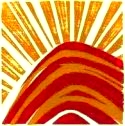
02.05.16 (Shevat 26, 5776) Again it is written in our Torah for this week (Mishpatim): "keep far from a falsehood"" (Exod. 23:7). The Shlomo Chanoch commented: "One of the things the Messiah will do is to bring those who are far closer, and those who are close farther." This is seen in the Hebrew word for truth (i.e., emet: אֱמֶת), where the letters are far apart (i.e., Aleph [א] at the beginning, Mem [מ] in the middle, and Tav [ת] at the end), whereas the letters of the word for falsehood, (i.e., sheker: שֶׁקֶר), are all in sequence (Shin [שׁ], Qof [ק], Resh [ר]). "The first shall be last and the last shall be first." When the Messiah returns, untruth will be undone and driven apart, but the truth of God's love will bring all things together in complete healing (see Eph. 1:10).
כִּי־הִנְנִי בוֹרֵא שָׁמַיִם חֲדָשִׁים וָאָרֶץ חֲדָשָׁה
וְלא תִזָּכַרְנָה הָרִאשׁנוֹת
וְלא תַעֲלֶינָה עַל־לֵב
ki · hi·nei·ni · vo·rei · sha·ma·yim · cha·da·shim · va'a·retz · cha·da·shah
ve'lo · ti·za·char·nah · ha'rish·o·not
ve'lo · ta·a·le·nah · al · lev

"For behold! I am creating a new heaven and a new earth;
The former things shall not be remembered,
they shall not rise within the heart"
(Isa. 65:17)

Carried by the Spirit...
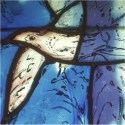
02.05.16 (Shevat 26, 5776) Sin is defined as the transgression of Torah (i.e., ἀνομία) in the Scriptures (1 John 3:4), and at its root expresses an unwillingness to trust that what God wants is your deepest happiness. Because of this, sin goes "out of bounds" and expresses itself as the desire to control one's life, to define "the good" (or the bad) on its own terms. Surrender, on the other hand, gives up control and relies upon God's care. It relaxes because it accepts God's love as a gift and not as something to be earned. Meister Eckhart said it this way, "God is not attained by a process of addition to anything in the soul, but by a process of subtraction." In other words, we don't need to do anything to be free, though we must "get out of the way" for the Holy Spirit to do the work in us. "If the Son shall set you free, you shall be free indeed" (John 8:36). Set us free, O precious Lord!
Decrees of Torah...

[ The following concerns this week's Torah reading, parashat Mishpatim... ]
02.05.16 (Shevat 26, 5776) The Hebrew word mitzvah (מִצְוָה) generally means "divine commandment" or "blessing" (mitzvot is the plural form). The various mitzvot found in the Torah may be further divided into the subcategories of "chukkim u'mishpatim" (Deut. 4:5). Chukkim (חֻקִּים) are statutes given without a reason (i.e., divine decrees). The classic example is the decree of the Red Heifer, which, legend has it, defied even the wisdom of King Solomon. Mishpatim (מִשְׁפָּטִים), on the other hand, are laws given for a discernible reason (i.e., logical laws). An example would be the commandment to give charity or prohibitions against theft and murder. These mitzvot are inherently rational and appeal to the need for civil and moral order. The relationship between chukkim and mishpatim -- or between "faith and reason" -- is highly interdependent, however, and the sages ultimately concluded that every commandment (regardless of type) may be regarded as if it were a decree given without a reason (i.e., all "mishpatim" may be reduced to the status of "chukkim"). This is because the merely rational acceptance of "religion" is insufficient to touch the heart of faith. We do not "understand to believe," but the other way around. A person who thinks it's "reasonable" to obey one commandment might later change his or her mind if their passion sways them to suddenly regard it as "irrational." No, we should obey God simply because God asks us to trust in him. We believe to understand... The great example here is the Akedah (עֲקֵדָה, "binding"), when Abraham willingly offered up his beloved son Isaac upon the altar as a sacrifice (Gen. 22:1-14). Abraham surely understood all the "commandments, decrees, and laws" of God (Gen. 26:5), but his faith led him to surrender his need to understand in devotion to the LORD. Abraham's Torah was that of faith: "And he believed in the LORD, and He counted it to him as righteousness" (Gen. 15:6). Surrendering our ego's reasoning (as absolute) by yielding to the wisdom of the LORD is the essential decree of the entire Torah.... (for more on this subject, click here...)
 |
Trust to Understand...

02.05.16 (Shevat 26, 5776) From our Torah portion this week (Mishpatim) we read: "all the people answered with one voice and said, כָּל־הַדְּבָרִים אֲשֶׁר־דִּבֶּר יְהוָה נַעֲשֶׂה / "All the words that the LORD has spoken we will do" (Exod. 19:8; 24:3). It is paradoxical that we must "do" first and then "hear," but in matters of the spirit, we don't really "hear" apart from acting in faith, which is another way of saying that "faith without works is dead" (James 2:17). In other words, our deeds will bring to life our creed, and we will be given light as we act in trust. As Yeshua said, "If you know these things, happy are you if you do them" (John 13:17).
You shall be holy to Me...

[ The following is related to this week's Torah reading (Mishpatim). ]
02.05.16 (Shevat 26, 5776) "You shall be holy to me" (Exod. 22:31). That is, you shall be "set apart" to know and live in God's love; you shall dwell in the secret place of the Most High, a place prepared especially for you (Psalm 91:1; John 14:2). Properly understood, holiness (קְדֻשָּׁה) expresses the realm of being loved, cared for, and watched over. It is an intimacy that is exclusively hallowed and made sacred. God calls you to his closed off chamber, the "holy of holies" where He dwells; there he invites you in, he welcomes you, he desires to see you (Heb. 4:16). The deeper meaning of holiness is to be spiritually intimate with God. Hence the Spirit of Holiness uses romantic and even sexual imagery in the Song of Songs to express the deepest yearnings we have for connection with God...
Lies and Distance...
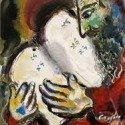
02.04.16 (Shevat 25, 5776) In our Torah reading this week (i.e., parashat Mishpatim) it is written, midvar sheker tirchak (מִדְּבַר־שֶׁקֶר תִּרְחָק), which means "keep far from a falsehood" (Exod. 23:7). This is the prescription for a good life, for being at peace with yourself. The lie is a type of violence, just as believing the lie leads to spiritual dissonance and conflict with reality. The godly soul abhors lying, since it loves the truth and understands that the LORD is the God of Truth (אֵל אֱמֶת). Indeed the Torah is called "Torat Emet," the way of truth (Psalm 119:142), and those who walk in truth practice the Divine Presence... Truth is the essence of God's Word (Psalm 119:160). As Yeshua , our Living Torah (חי תורתנו) said, "For this purpose I was born and for this purpose I have come into the world -- to bear witness to the truth. Everyone who is of the truth listens to my voice" (John 18:37).
ראשׁ־דְּבָרְךָ אֱמֶת
וּלְעוֹלָם כָּל־מִשְׁפַּט צִדְקֶךָ
rosh · de·var·ke·kha · e·met
u·le·o·lam · kol · mish·pat · tzid·ke·kha

"The sum of your word is truth,
and every one of your judgments endures forever"
(Psalm 119:160)

Surrender to Presence...

02.04.16 (Shevat 25, 5776) When Yeshua was asked, "What shall we do to do the works of God?" he replied, "Here is good news: God himself will do the work for you; you only need to believe and receive the grace and love that he gives" (John 6:29; Isa. 26:12; Psalm 68:28). The Spirit of God is called ruach (רוּחַ), the "wind" or the "breath" of God. We must learn to surrender, to relax, and to let go of our desire to control things, by trusting in God's loving presence and care (see Acts 17:28). "The wind (ruach) blows wherever it will, and you hear the sound it makes, but do not know where it comes from and where it is going. So it is with everyone who is born of the Spirit" (John 3:8). What then shall we do to do "the works of God"? Nothing but opening your heart to his Presence, listening for the whispering wind, so that you might receive the Spirit of God (John 20:22; Zech. 4:6; Ezek. 36:26). Sin is ignoring spiritual reality, withdrawing from the touch of the Spirit, and refusing to receive God's passion for your soul...
 |
Awaken to the Spirit...

02.04.16 (Shevat 25, 5776) "You do not know what spirit you are of..." (Luke 9:55). Yeshua's words imply that each of us has the responsibility to know ourselves (γνῶθι σεαυτόν), and to learn to endure (and overcome) the natural motives and focus of our hearts. We discover the truth of our spiritual condition in the midst of our daily frustrations, as we experience conflict, opposition, and the inner groan that arises from pressure and disappointment. Spiritual growth means learning is to transcend our negative reactions, to stop cursing our conflicts, and to awaken to the blessings that surround and pervade our way. God's grace enables us to open our eyes so that we may "choose life and live" (Deut. 30:19). Our daily struggle with sin reveals the contradiction between the ideals of our faith and the spontaneous reactions of our heart.... We live in between the "is" and the "ought," the real and the ideal (though often we deny one or the other). The impulse to despair, to be angry, to complain and curse our experience can be transformed into an opportunity to pray, to ask God for help, and to refocus on what is real. This is the "hidden blessing" (ברכת סוד) of our troubles. When we learn to surrender to God's Presence, we can breathe in his peace and love, despite the grief we encounter over ourselves and others. When we come to the light, and do not deny the truth about our condition, we can honestly ask the LORD for healing (Heb. 4:16). When we seek for the good - and even bless the struggle - we express our trust that God will use our sorrow to help us grow and to bring beauty from our ashes (2 Cor. 7:10). Hashivenu: "Turn us back to yourself, O LORD, so that we may return to you."
הֲשִׁיבֵנוּ יְהוָה אֵלֶיךָ וְנָשׁוּבָה
חַדֵּשׁ יָמֵינוּ כְּקֶדֶם
ha·shi·ve·nu · Adonai · e·ley·kha · ve·na·shu·vah,
cha·desh · ya·me·nu · ke·ke·dem

"Turn us back to yourself, O LORD, so that we may return to you;
renew our days as of old" (Lam. 5:21)

Hebrew Study Card
Brokenness distills the intentions of the heart by helping us to be more honest with ourselves. We begin to realize that we are more vulnerable than at first we thought; that our faith is not as strong as we imagined, and that our motives are often mixed and unconscious. Illusions are striped away; idols crumble; deeper levels of selfishness are uncovered; the gap between our words and our deeds is exposed... It is one thing, after all, to intellectually think about faith or to idealize spirituality, but it is quite another to walk out faith in darkness. Yet it is only there, in the rawness of heart, that we discover what we really believe and how our faith makes traction with reality...
Torah of the Stranger...
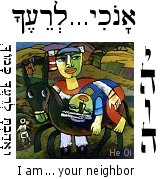
02.03.16 (Shevat 24, 5776) From our Torah portion this week (Mishpatim) we are reminded not to wrong or oppress the "stranger," because we were also once strangers in Egypt (Exod. 22:21). The unspoken assumption here is that since we can understand how it feels to be oppressed and wounded, our suffering can be transformed into compassion for others. But how? How are we set free from our inner pain so that it no longer is a destructive force but rather a means of healing? By understanding our pain is carried by others, too. To acknowledge the pain of others means we also acknowledge our own. We let go of the weapons of blame and retribution when we give voice to the "stranger" within ourselves, when we realize that others share in our suffering: "Do not oppress a sojourner, for you know the soul of a stranger (וְאַתֶּם יְדַעְתֶּם אֶת־נֶפֶשׁ הַגֵּר), for you were strangers..." (Exod. 23:9). The Hebrew verb used here (i.e., yada, to know), implies intimacy, personal and direct understanding. You "know the soul" of the stranger by reliving their place, and by using the "good eye" to see how they share common our pain, joy, hope, and so on. Being awake to the suffering of others helps us find our own healing: We are brought out of the captivity of our inner Egypt into freedom and wholeness. Remembering what it was like to be a stranger helps us extend compassion to ourselves, and that brings healing to our hearts...
 |
God's Consuming Fire...

[ The following is related to this week's Torah reading, parashat Mishpatim... ]
02.03.16 (Shevat 24, 5776) From our Torah portion this week (Mishpatim) we read: "Now the appearance of the glory of the LORD was like a consuming fire on the top of the mountain in the sight of the people of Israel" (Exod. 24:17). Now some people regard this fire as a threat, even a sign of God's judgment, though it is better to regard it as a sign of God's glorious passion. After all, the pillar of fire had led the people out of bondage, just as it later dwelt between the cherubim upon the Ark of the Covenant. Indeed the fire that fell upon followers of Yeshua at Pentecost was the same manifestation of the glory of God's passionate love that was revealed at Sinai. Our God is a "consuming fire" (אֵשׁ אכְלָה), which means that He is full of passion and zeal that your heart fully belongs to Him...
כִּי יְהוָה אֱלהֶיךָ אֵשׁ אכְלָה הוּא אֵל קַנָּא
ki · Adonai · E·lo·he·kha · esh · o·khe·lah · hu · El · kan·na

"For the LORD your God is a consuming fire, a zealous God."
(Deut. 4:24)

Hebrew Study Card
The metaphor that God is a Consuming Fire suggests that He is both indescribable and passionately concerned with our devotion to Him. "Therefore let us be grateful for receiving a kingdom that cannot be shaken, and thus let us offer to God acceptable worship, with reverence and awe, for our God is a consuming fire" (Heb. 12:28-29). We are promised a kingdom that cannot be shaken, wherein the Fire that consumes will consume all things that are not established by our Heavenly Father... "Know therefore today, and lay it to your heart, that the LORD is God in heaven above and on the earth beneath; there is no other. Therefore you shall keep his statutes and his commandments, which I command you today..." (Deut. 4:39-40). Our lives on the altar ascend to God in praise.
The Substance of Hope...
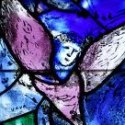
02.02.16 (Shevat 23, 5776) Have you ever wondered why the exercise of your faith is so important to heaven? The Scriptures say that faith is the "substance" (ὑπόστασις) of hope, the conviction of unseen blessing, and "without faith it is impossible to please God, for whoever would draw near to God must believe that he exists and that he rewards those who seek him" (Heb. 11:6). Faith is its own reward, since believing the truth brings you into alignment with reality. Teshuvah is the response to God's love... Faith confesses that God is your Ultimate Concern, your Supreme Good, the goal and end of all that matters to your heart. Your faith is "more precious than gold," because its heart is your highest blessing, namely, the Divine Presence, the beatific reality, and heaven itself.... God tests our faith to draw our attention to His Reality (Psalm 119:71); to teach us endurance (Rom. 5:3-5; James 1:4); to upbuild our soul (Jude 1:20); to purify our affections (1 Pet. 1:7), and to glorify His Name (kiddush HaShem). Life in this world is likened to a school wherein we learn how great God is and how much we are loved, valued, and esteemed precious in His eyes.
Believe that God is your healer, that he makes your crooked things straight, and that you are forever his beloved child... Faith sees the end in God's unfailing love, and it trusts that He will "turn dark places into light."
וְהוֹלַכְתִּי עִוְרִים בְּדֶרֶךְ לא יָדָעוּ
בִּנְתִיבוֹת לא־יָדְעוּ אַדְרִיכֵם
אָשִׂים מַחְשָׁךְ לִפְנֵיהֶם לָאוֹר
וּמַעֲקַשִּׁים לְמִישׁוֹר
אֵלֶּה הַדְּבָרִים עֲשִׂיתִם וְלא עֲזַבְתִּים
ve·ho·lakh·ti · iv·rim · be·de·rekh · lo · ya·da·u
bin·ti·vot · lo · ya·du · ad·ri·khem
a·sim · mach·shakh · lif·ne·hem · la·or
u·ma·a·ka·shim · le·mi·shor
el·lah · ha·de·va·rim · a·si·tim · ve·lo · a·zav·tim

"And I will lead the blind in a way that they do not know,
in paths that they have not known I will guide them.
I will make dark places before them turn to light,
and perverse things into uprightness.
These things I will do, and I will not forsake them."
(Isa. 42:16)

Hebrew Study Card
The Work of Faith...

02.02.16 (Shevat 23, 5776) In our Torah portion for this week (i.e., Mishpatim) we read that when the people gathered before Moses to receive the covenant, they said: "All that the LORD has spoken we will do and we will hear (נַעֲשֶׂה וְנִשְׁמָע)." Note the order: first comes the decision to obey, and then comes understanding... As Yeshua said, "If anyone's will is to do God's will, he will know," and "if you know these things, blessed are you if you do them" (John 7:17; 13:17). The heart of faith is willing to do what God asks before hearing what exactly is required. Many people operate the other way round, sitting in judgment of God's word, demanding to understand why they should obey. You cannot understand apart from trust, however, and that is categorically true of all forms of knowledge. We are to be "doers of the word and not hearers only, deceiving ourselves" (James 1:22). We don't audit the words of Scripture since we ourselves are under examination! The Scriptures demand us to respond, choose, decide. The word is like a shofar blast rousing us to action. We are to be doers, not just passive hearers. The Greek verb is emphatic: "Be doers!" (γίνεσθε) means "be born! come alive! do, live, exist before God! This is a call to creative action, to newness of life!
The Scriptures state that "if anyone is a hearer of the word and not a doer, he is like a man who looks intently at his natural face in a mirror. For he looks at himself and goes away and at once forgets what he was like" (James 1:23-24). If we just hear the truth but do not act upon it, we are comically likened to someone who carefully looks at his face in a mirror but then promptly forgets what he looks like after he steps away... Likewise those who only hear the word but do not bring it to life in their deeds forget who they are and why they were created (Eph. 2:10; Titus 2:14; Col. 1:10). When we look into the mirror of truth we see our need for teshuvah and turn to God for the healing miracle he provides (Heb. 4:12).
For more on this, see: "The Work of Faith: Further Thoughts on Mishpatim."
 |
Surrender and Transformation...

02.01.16 (Shevat 22, 5776) All who surrender obey, but not all who obey surrender... While we are not saved by obeying rules of conduct but solely by trusting in God's love (Eph. 2:9; 2 Tim. 1:9, Titus 3:5, Rom. 11:6, etc.), we will find ourselves willing to obey God from the heart only if we are really convinced that he loves and accepts us, despite our sins... The love of God is not without discipline, structure, and order, after all. Love is polite; it listens; it seeks to serve and worship with reverence and gratitude. So, after unconditionally surrendering our hearts to God, we will desire to do his will, that is, we will want to know and to do his Torah (Psalm 1:2), and the Holy Spirit will therefore lead us to a place of order, faithfulness, and peace - not to disorder and confusion (1 Cor. 14:33,40). There are disciplines to the life of faith that are instilled within our hearts to help us "work out" the inner transformation of God's love into our daily lives (Jer 31:33; Heb. 10:16). And that is part of the rationale for liturgy, ritual, observing the moedim (biblical holidays), reading the weekly Torah portions, giving tzedakah, performing acts of chesed, and so on. Ideally such things are meant to provide "form" to the inner content of the heart...
Note: For more on this see: "The Problem of Obedience..."
 |
The New Covenant at Sinai...
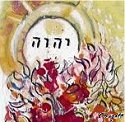
02.01.16 (Shevat 22, 5776) In our Torah portion for last week (i.e., Yitro), God revealed the Ten Commandments to the Israelites at Sinai, a dramatic event that some say represented the giving of the law, or the "Old Covenant," to Israel. Now while a case can surely be made that the revelation at Sinai represented an "older covenant" (see 2 Cor. 3:14; Heb. 7:18, 8:6,13, and here), when looked at from another perspective, Sinai actually represented a sort of new covenant, since it was given later and served as a proviso to the covenant given earlier to Abraham (Gal. 3:18). The culmination of the covenant at Sinai was the revelation of the altar (i.e., the Tabernacle), which pictured the sacrificial blood "covering" the tablets of God's judgment. This, in turn, recalled Abraham's great sacrifice of his son Isaac (the Akedah), which further recalled the very first sacrifice of the Bible, namely the lamb slain in the orchard of Eden to cover the shame of Adam and Eve's sin (Gen. 3:21; Rev. 13:8). Therefore it was the promise God made to Eve regarding the "Seed to Come" that is the original covenant (Gen. 3:15), and it was this covenant that was later fulfilled by Yeshua, the "Serpent Slayer" of God (Num. 21:9; John 3:14). This is the "Gospel in the Garden" message, the original promise of the lamb of God that was slain from the foundation of the world... In other words, the "new covenant" (בְּרִית חֲדָשָׁה) may better be understood as the fulfillment of the original covenant, the promise to redeem all of humanity from the curse of sin and death. The redemptive plan of God therefore moves in an ascending circle. The "Tree of Life" reaches back to the orchard of Eden and extends into the World to Come...
Note: For more on this see: "New Covenant at Sinai: Further thoughts on Yitro."
 |
|

































































